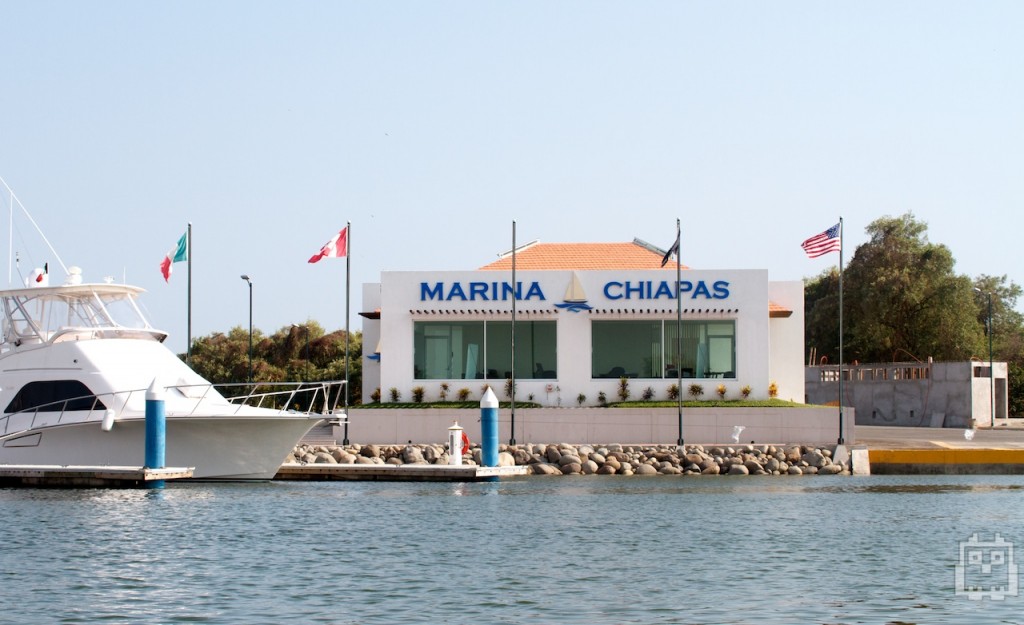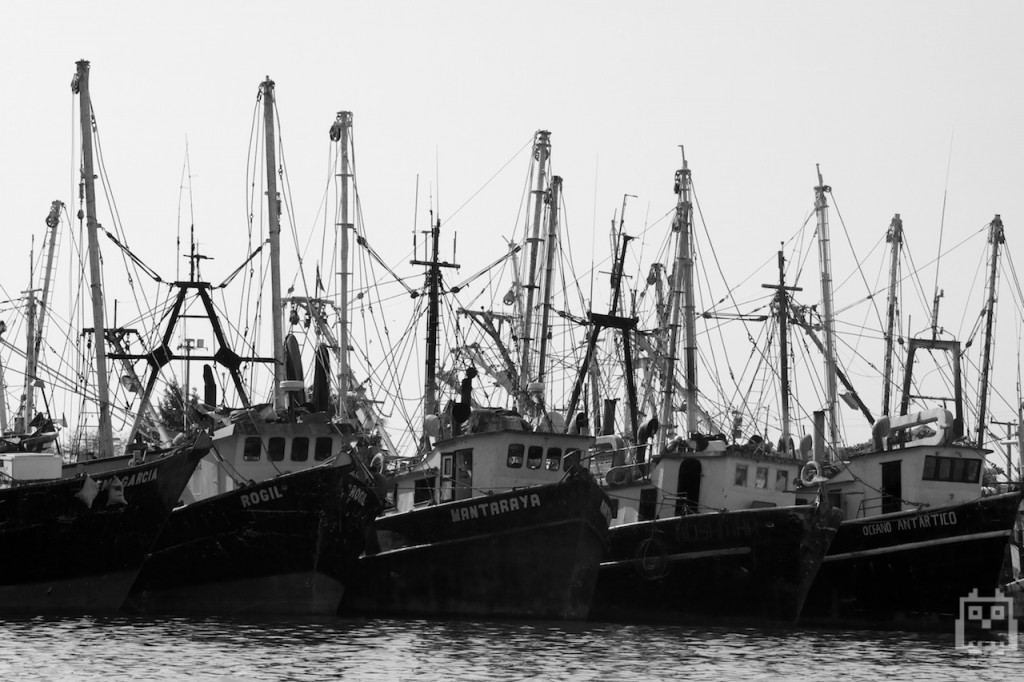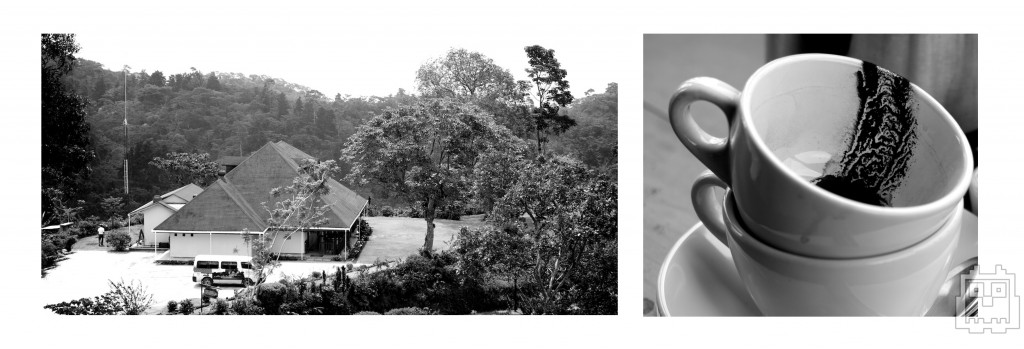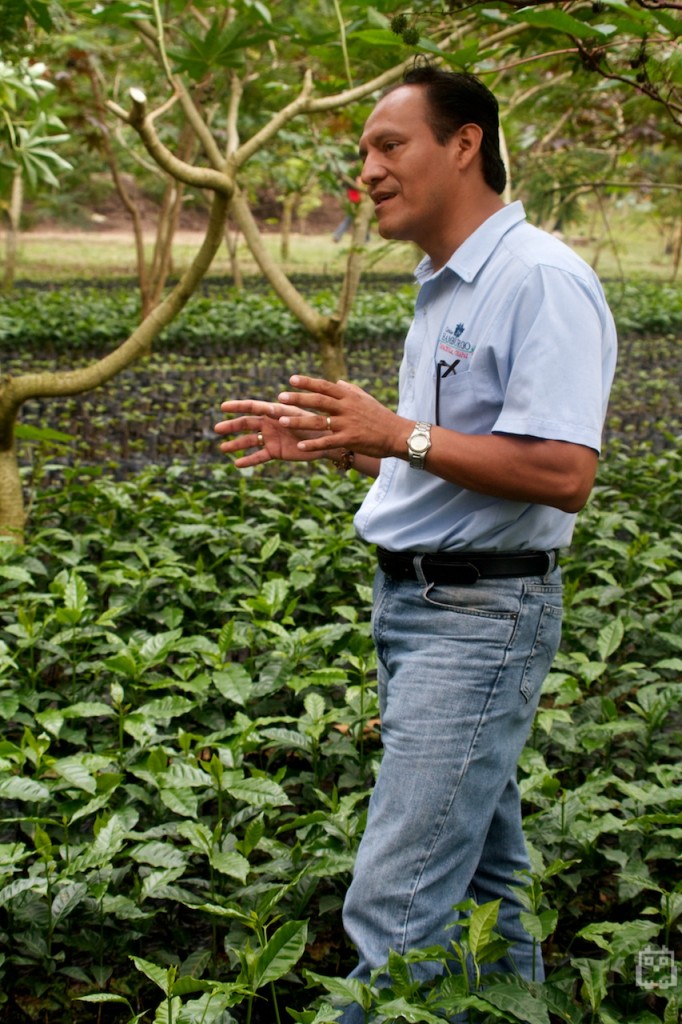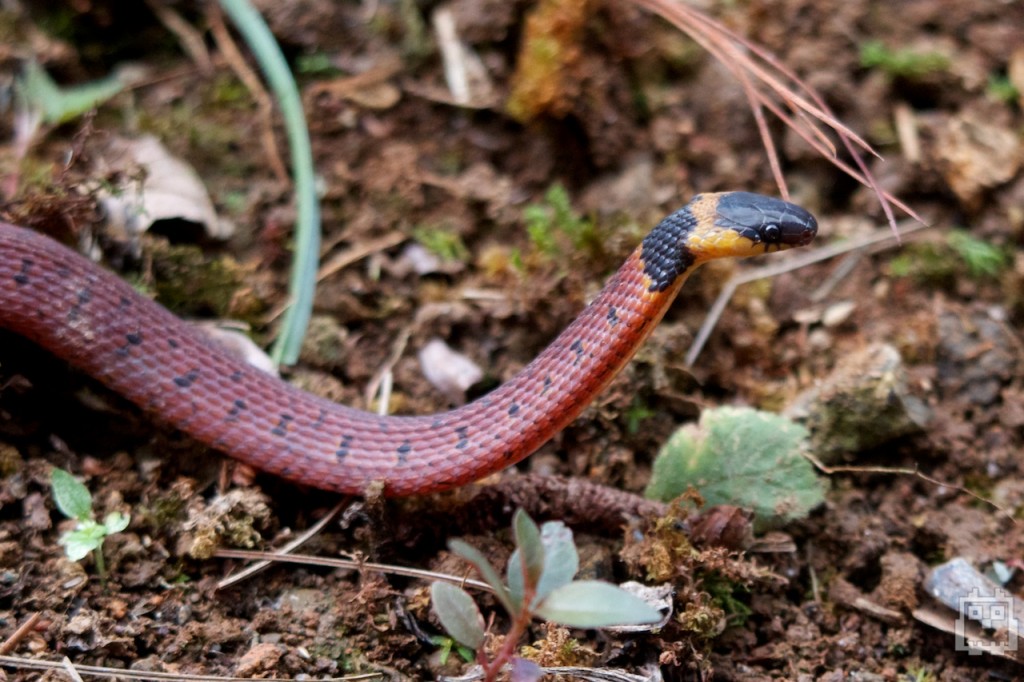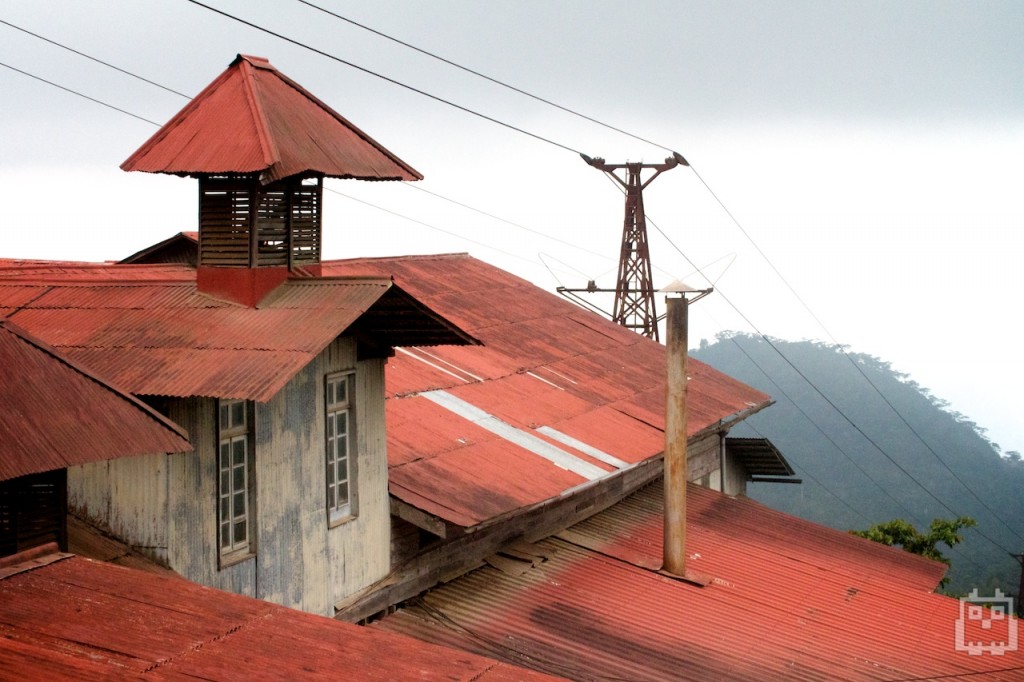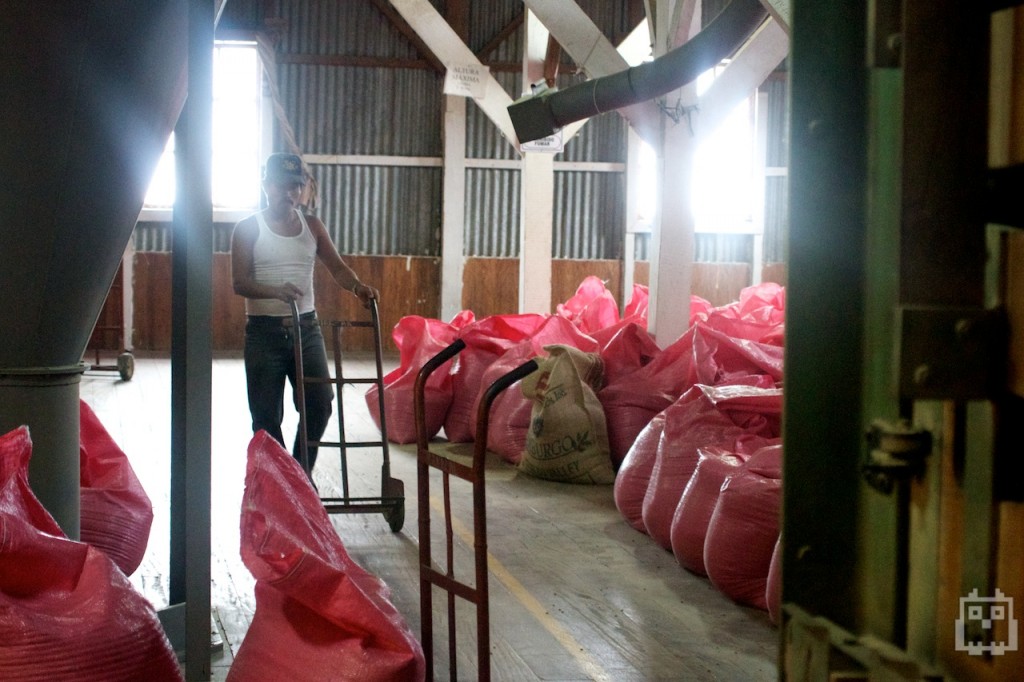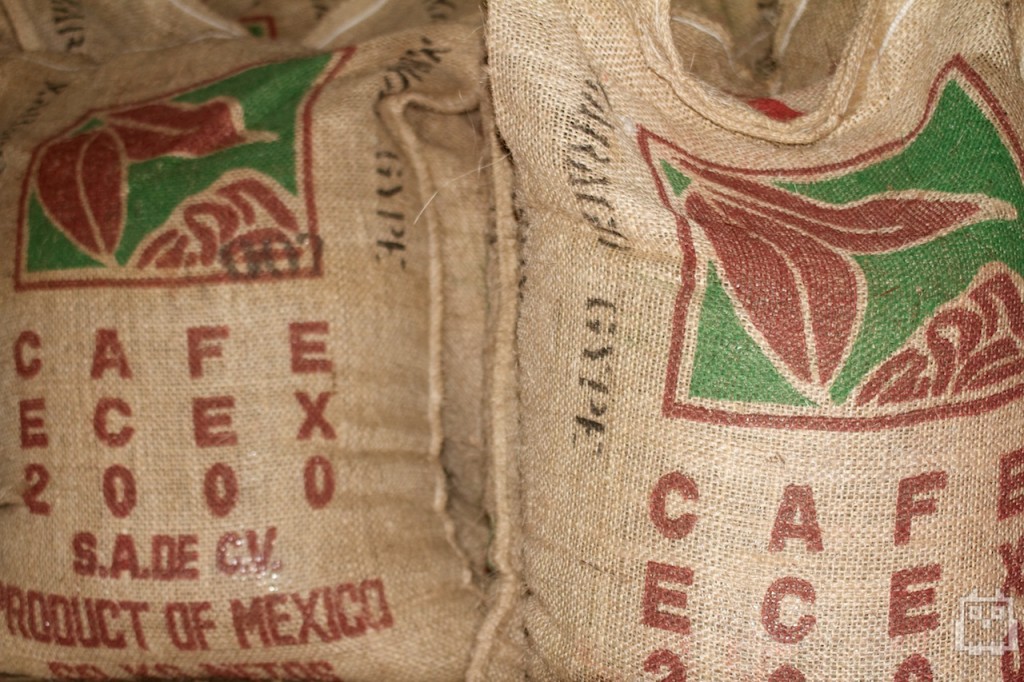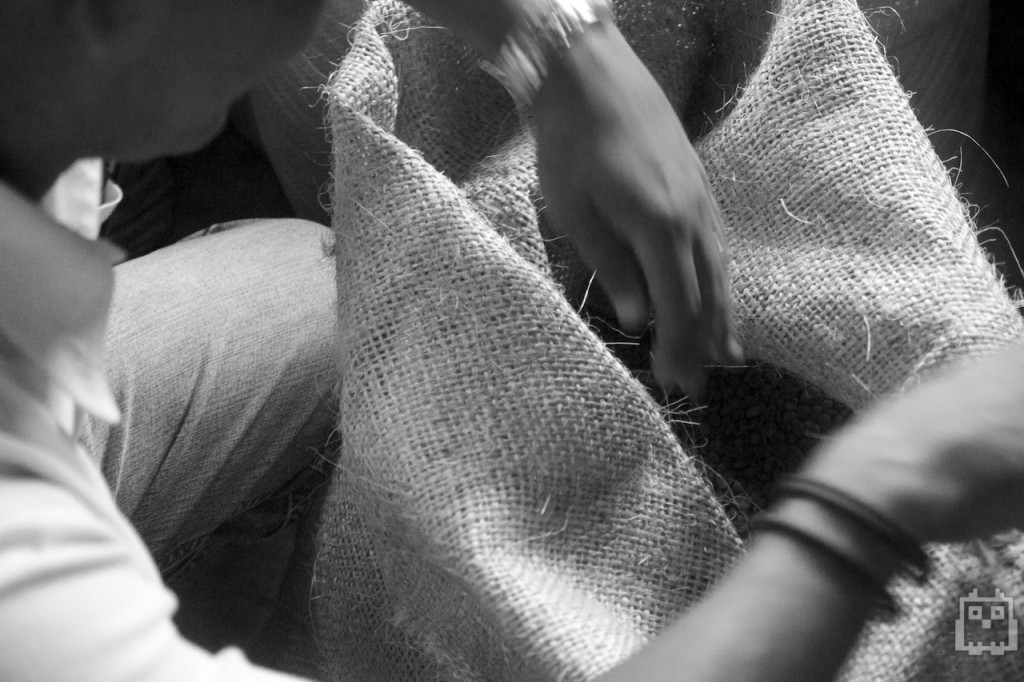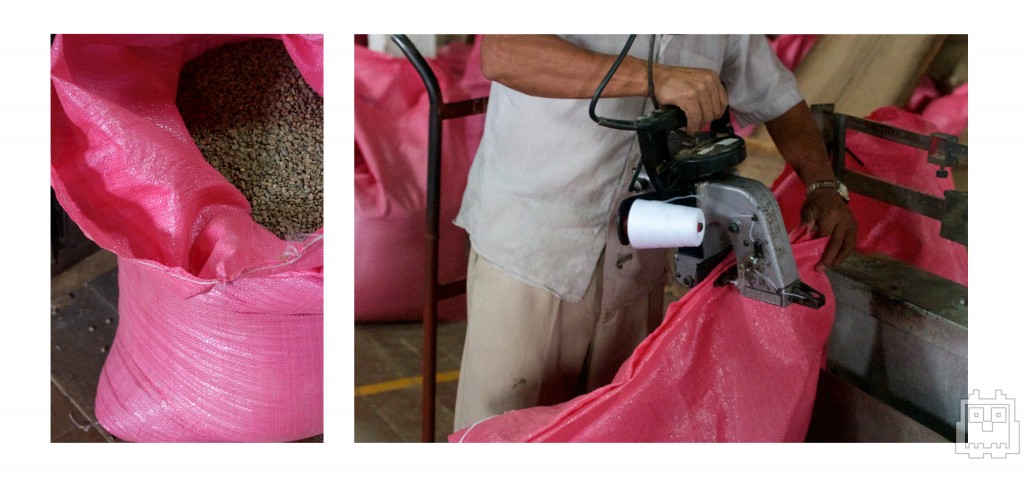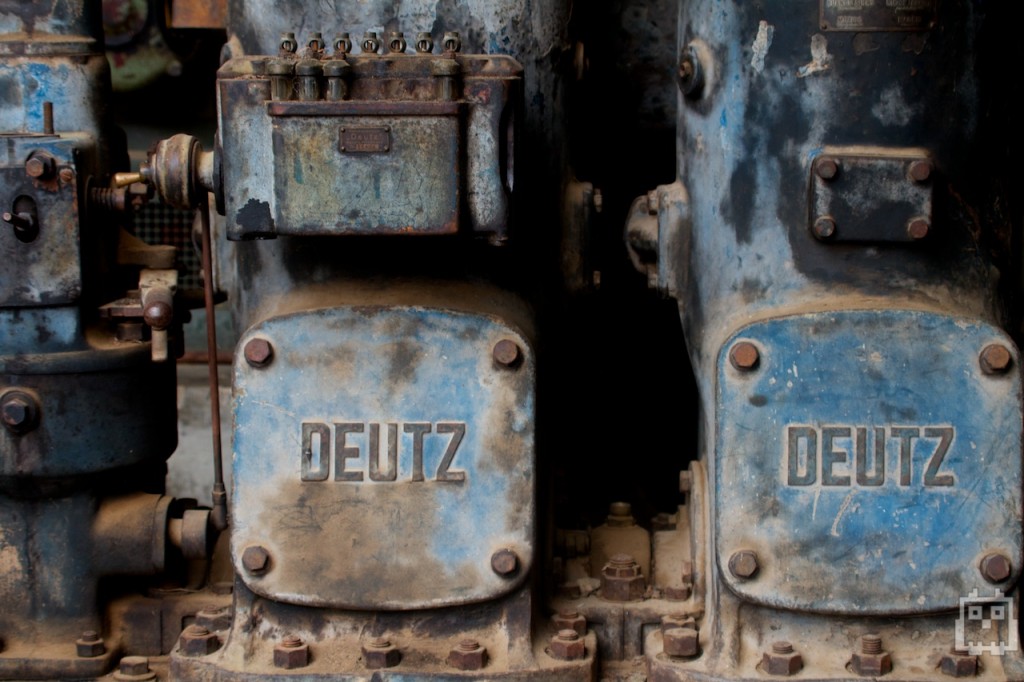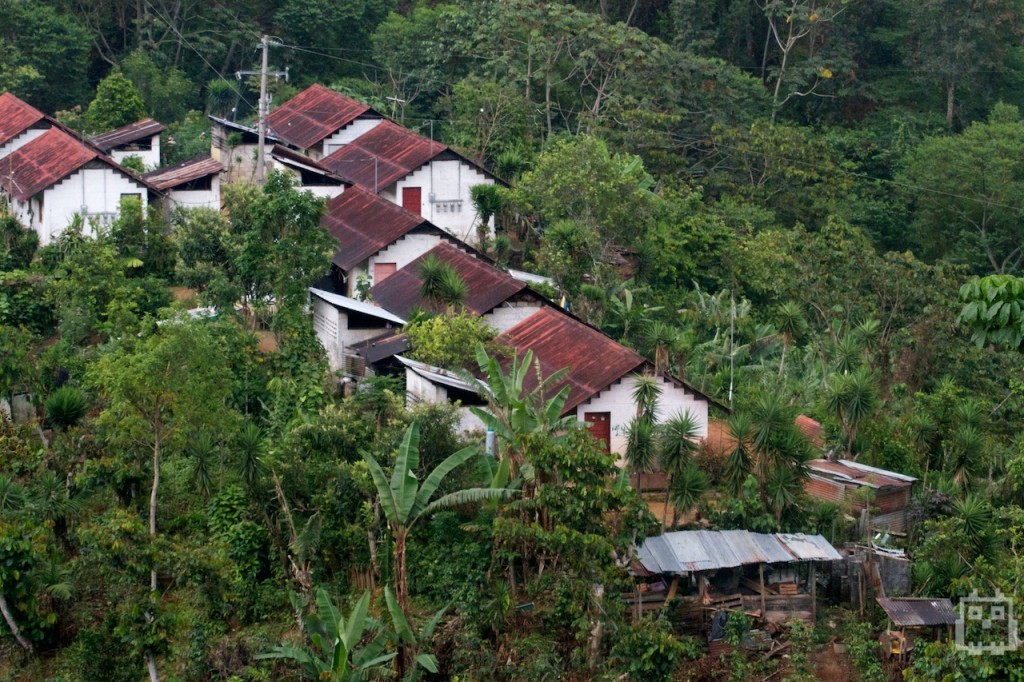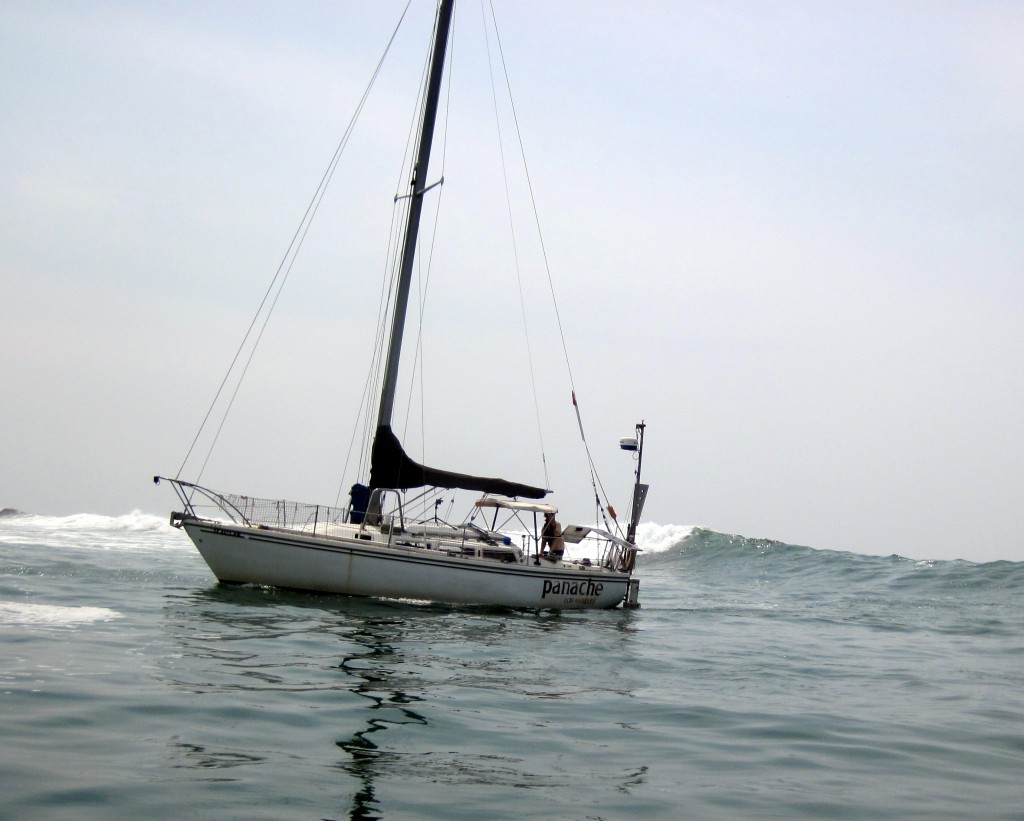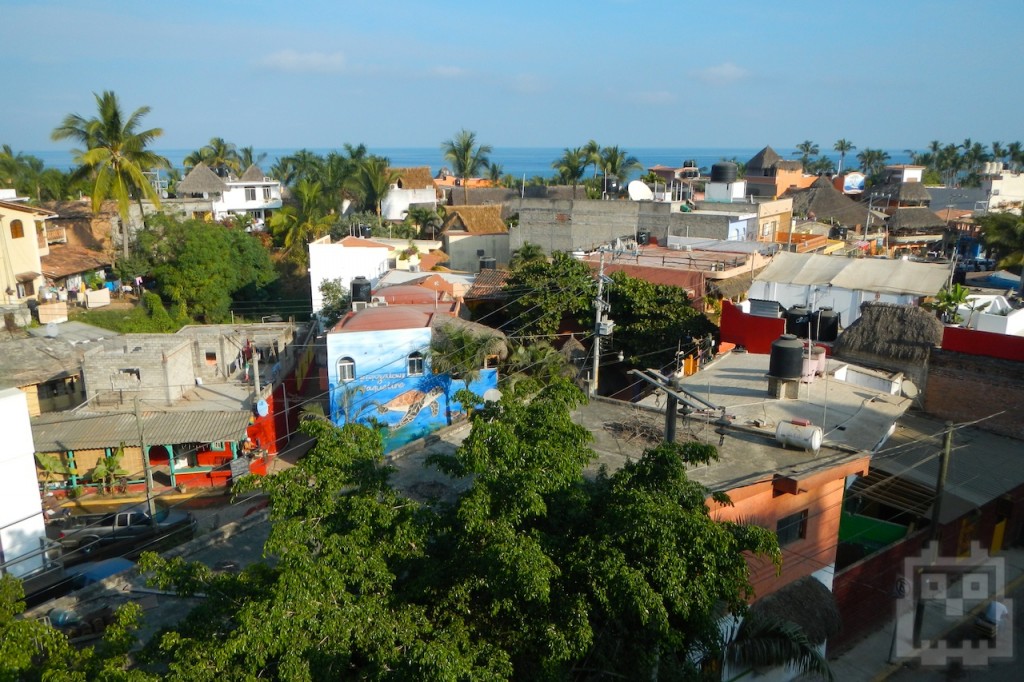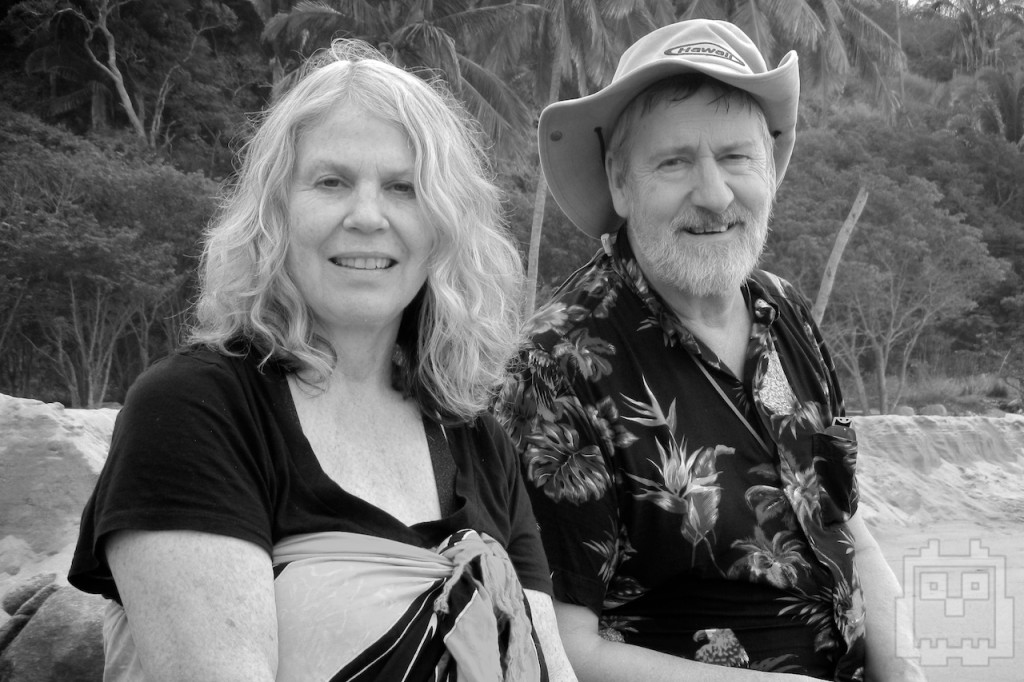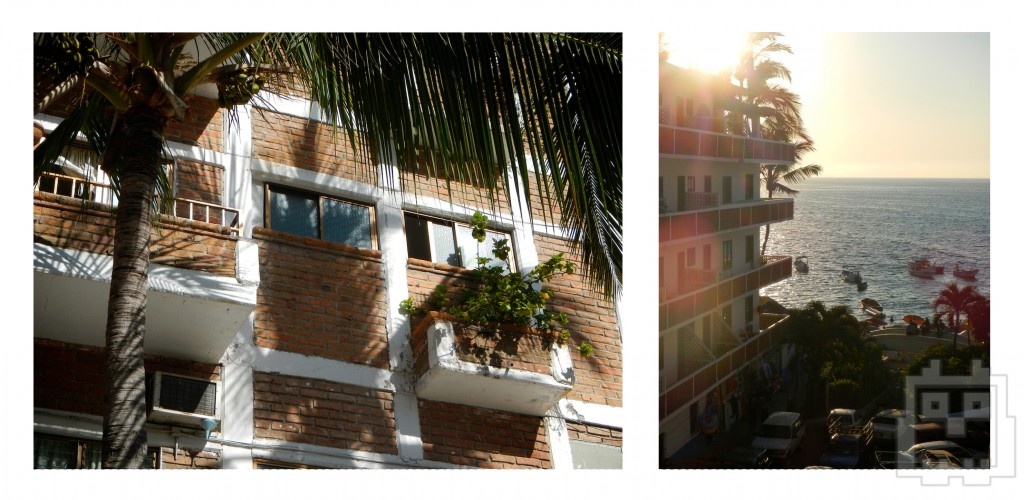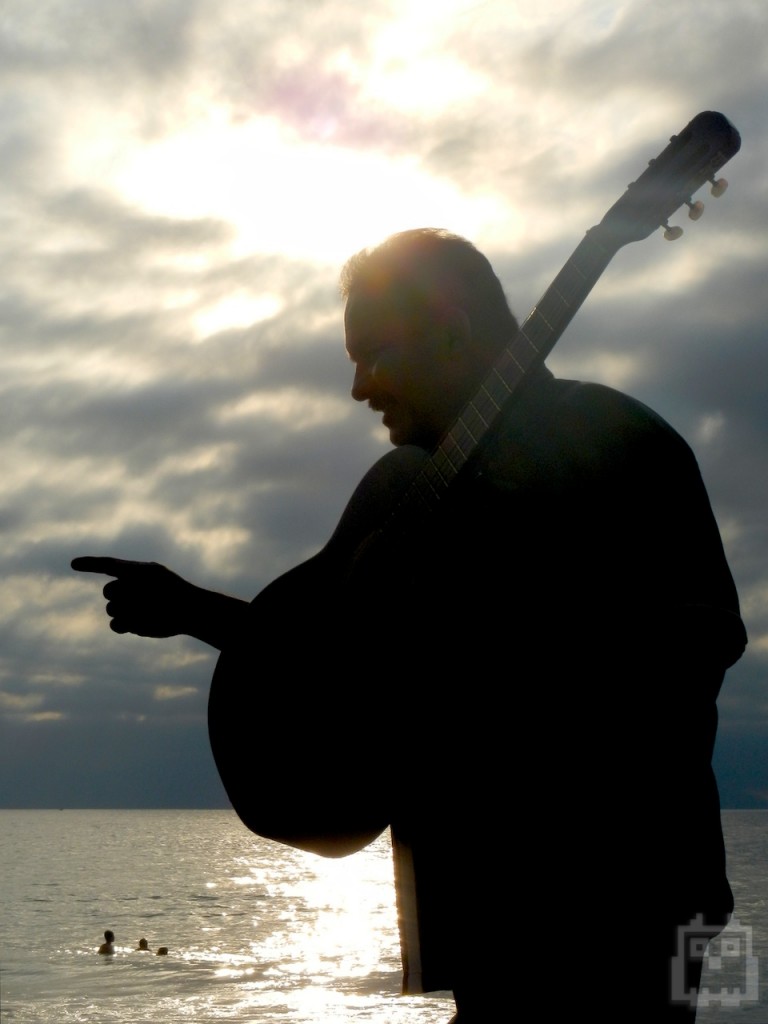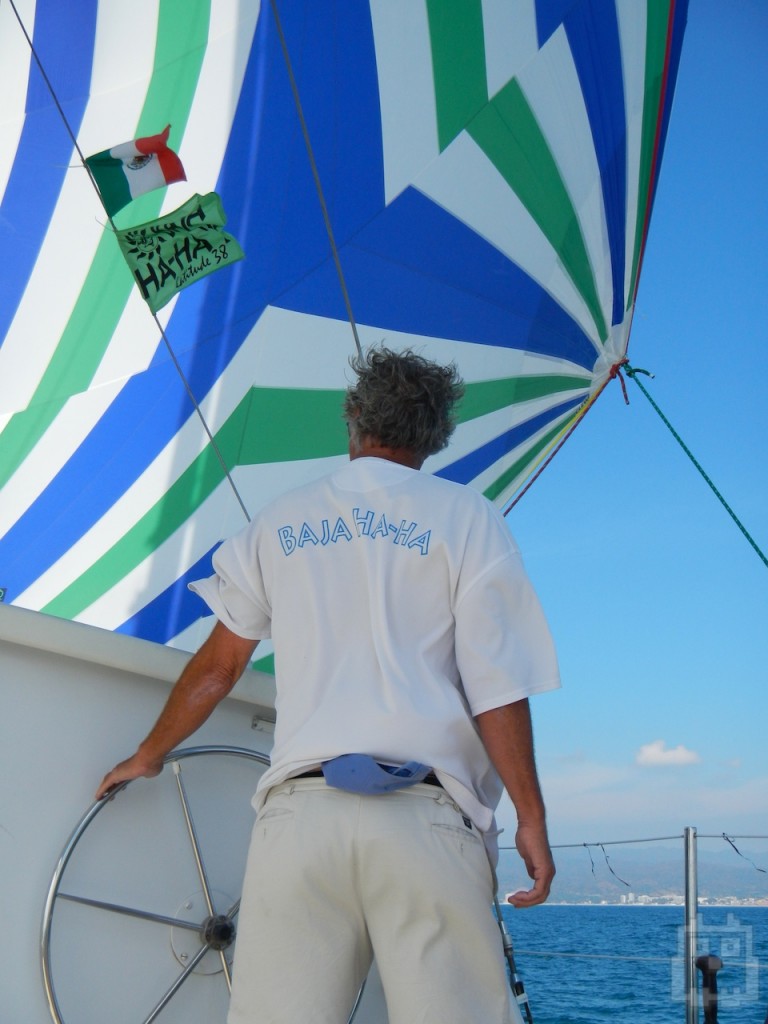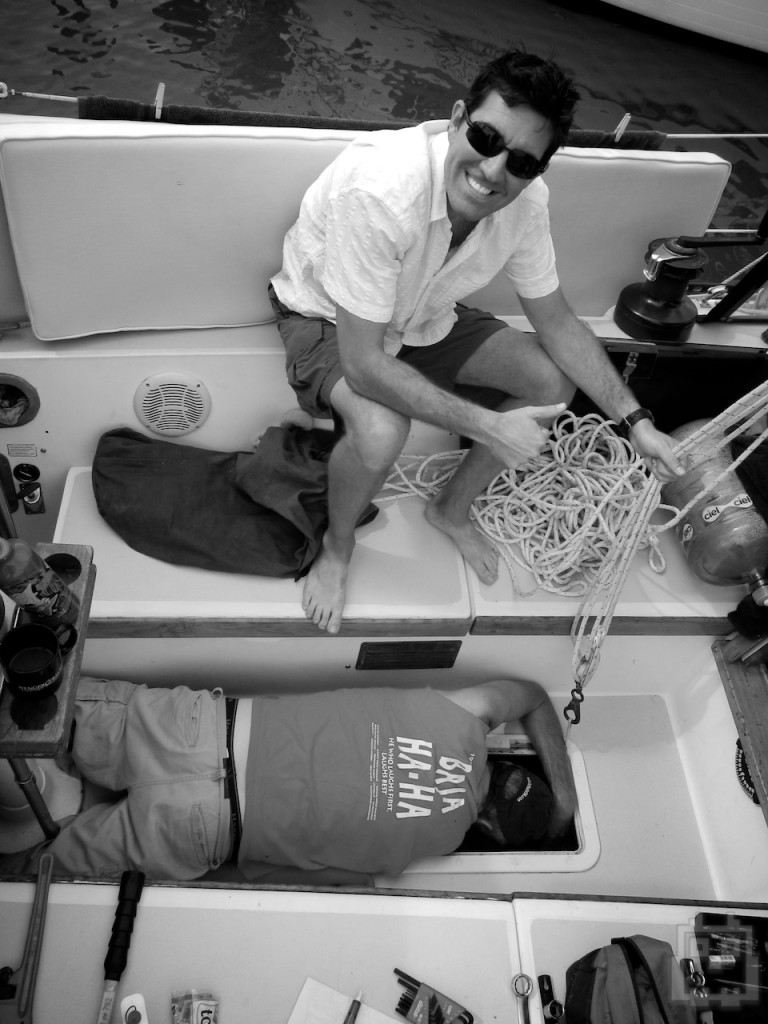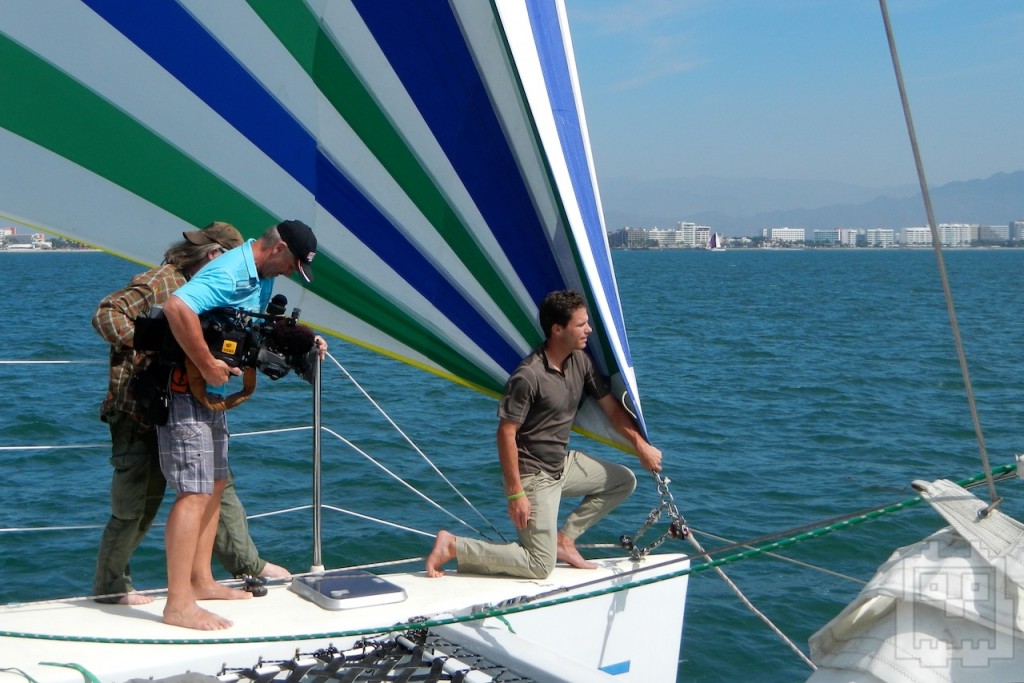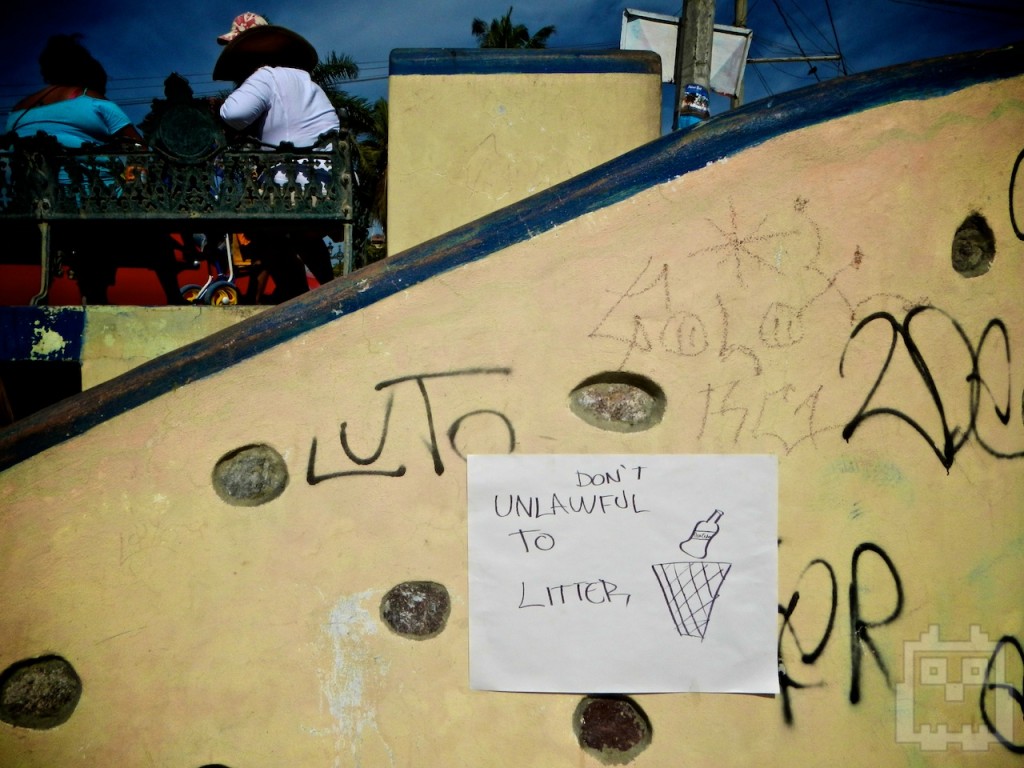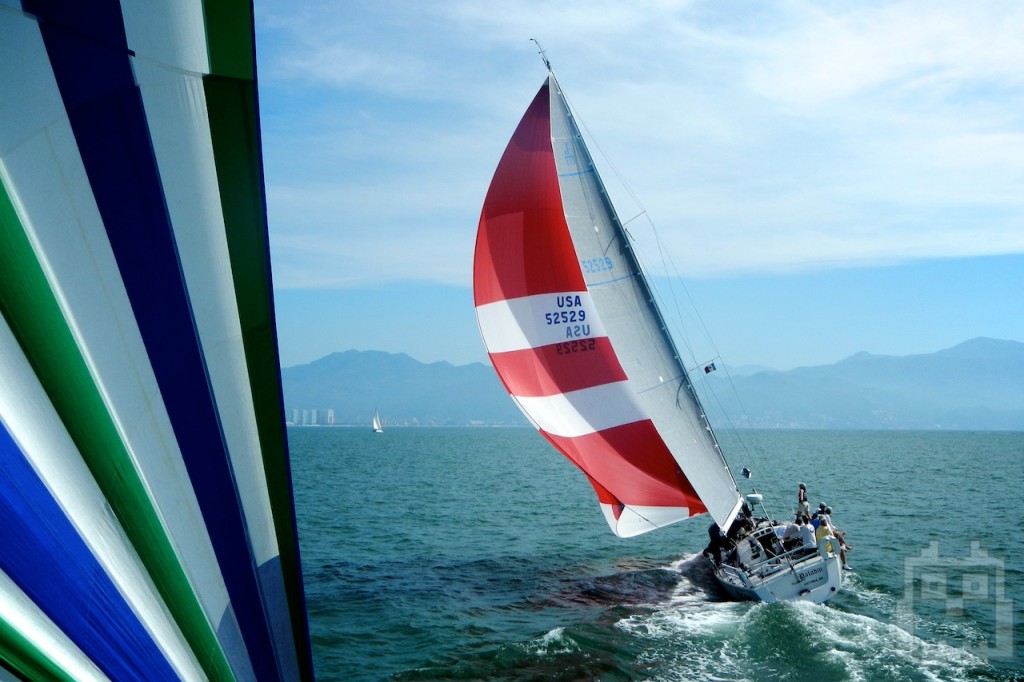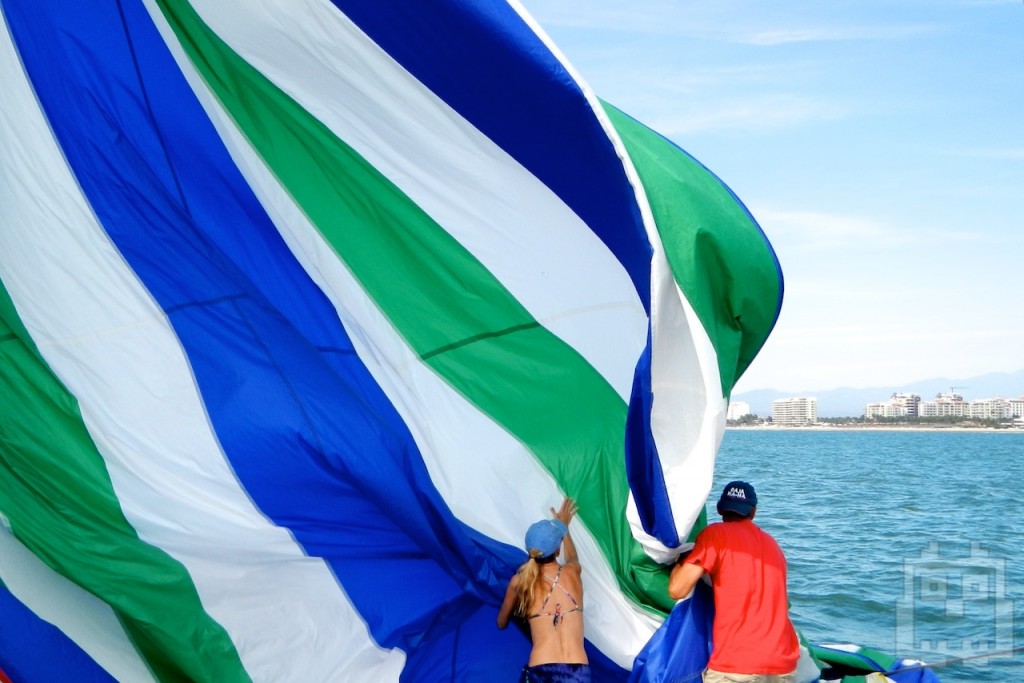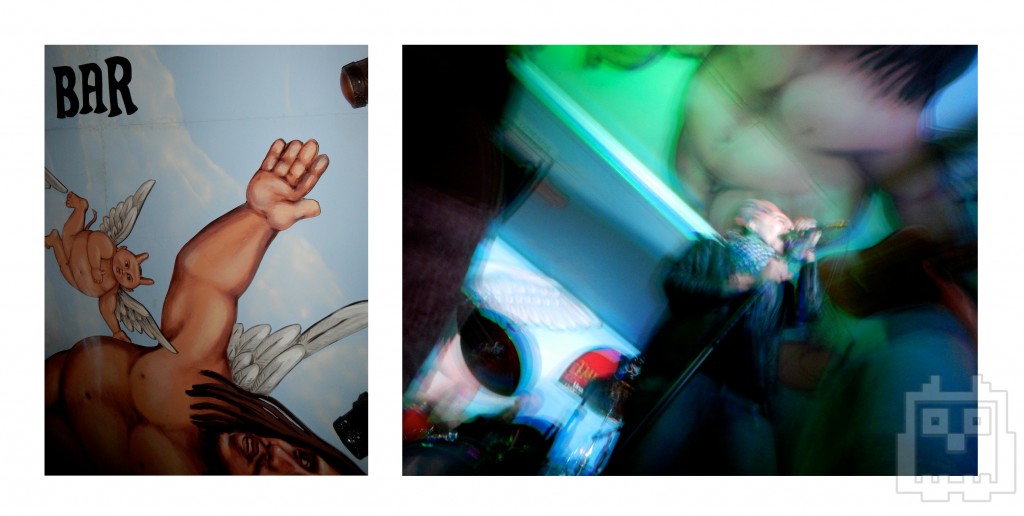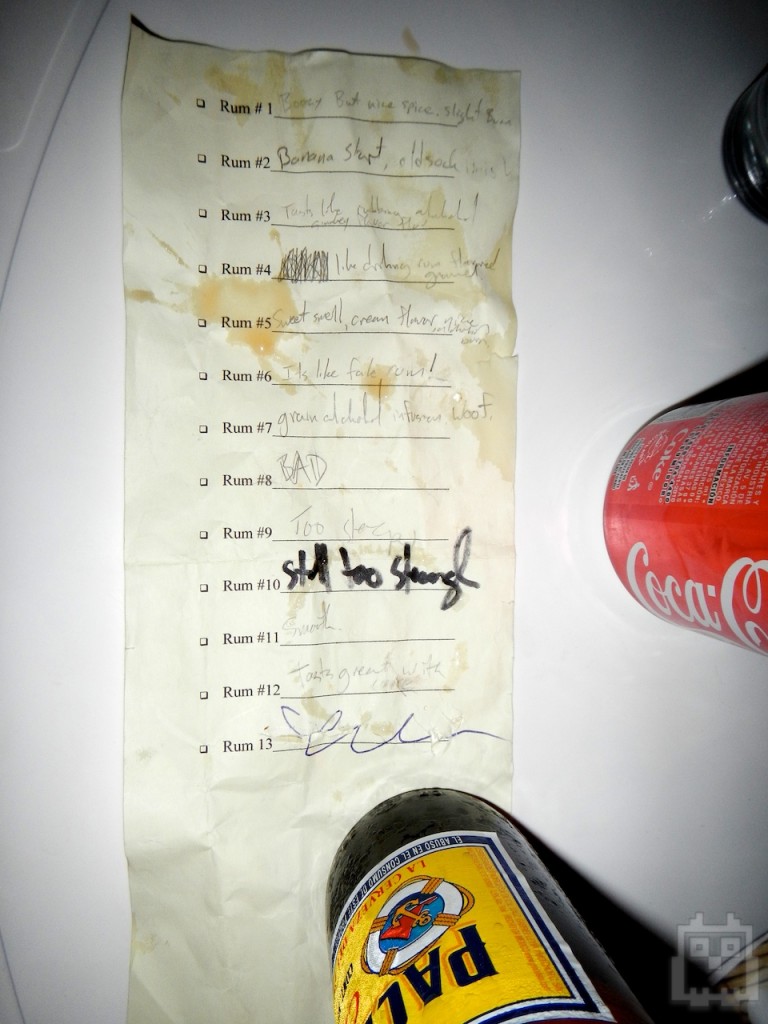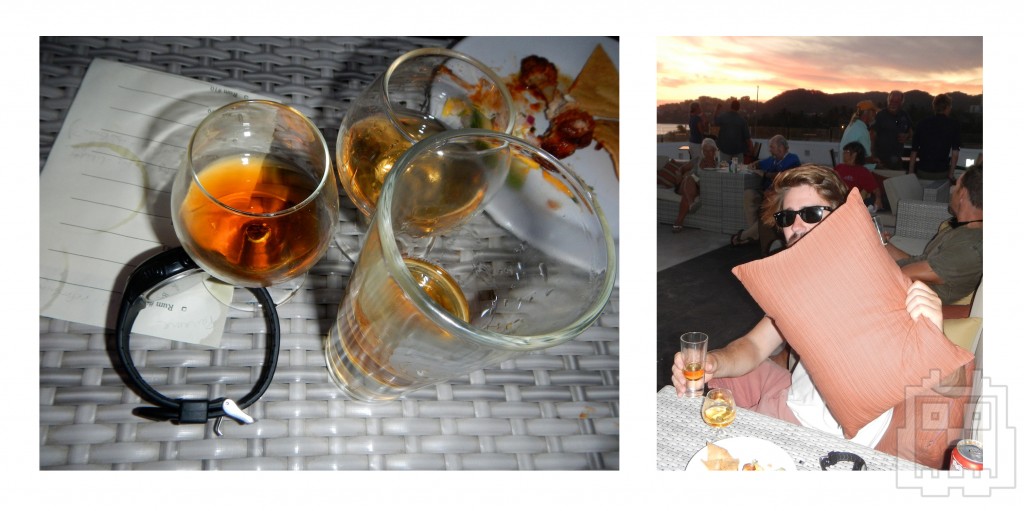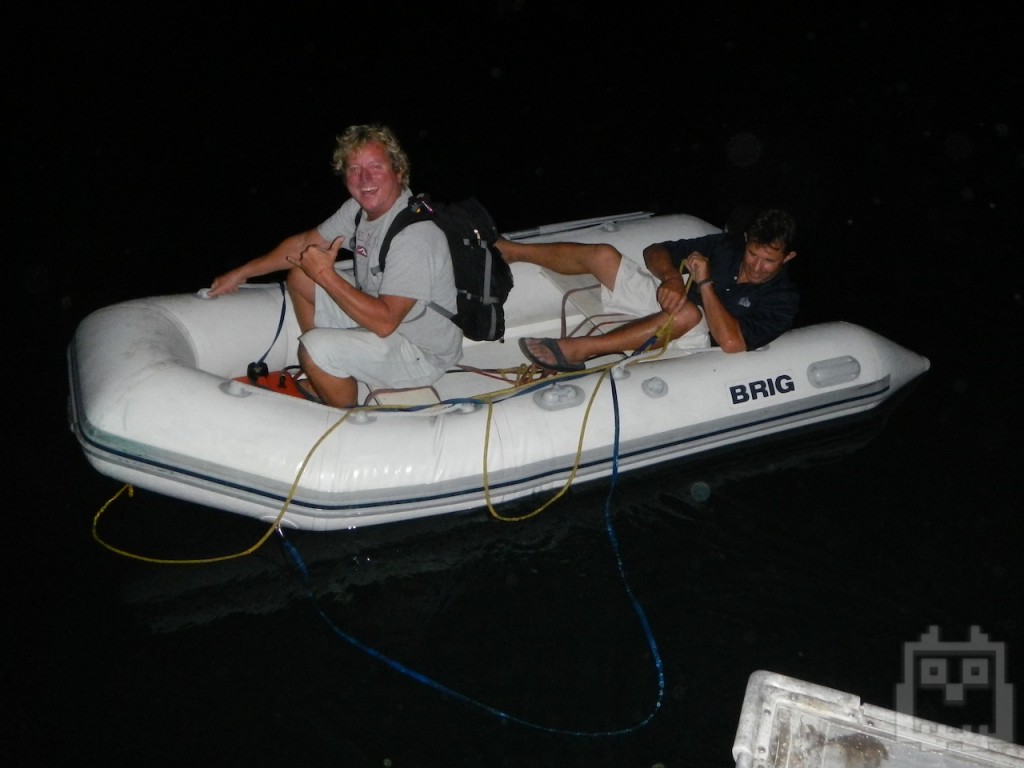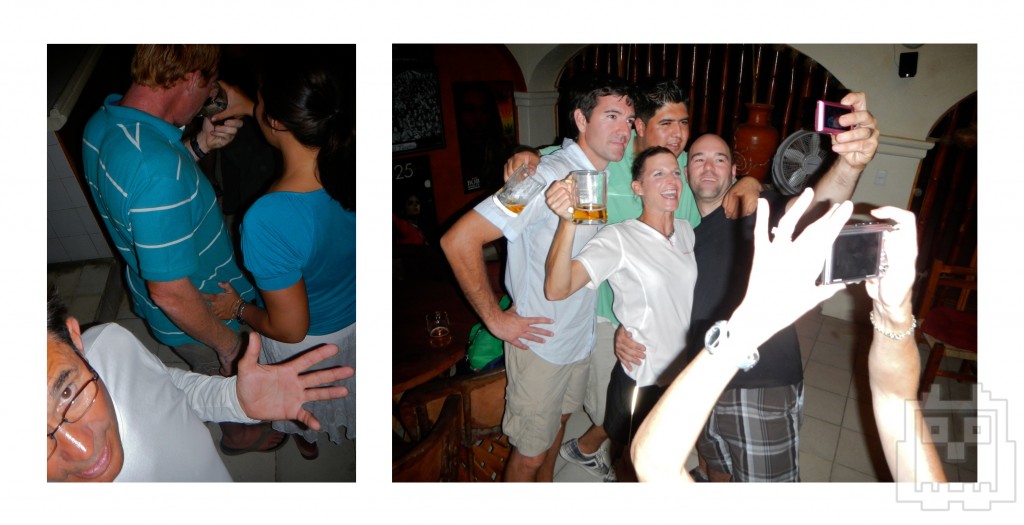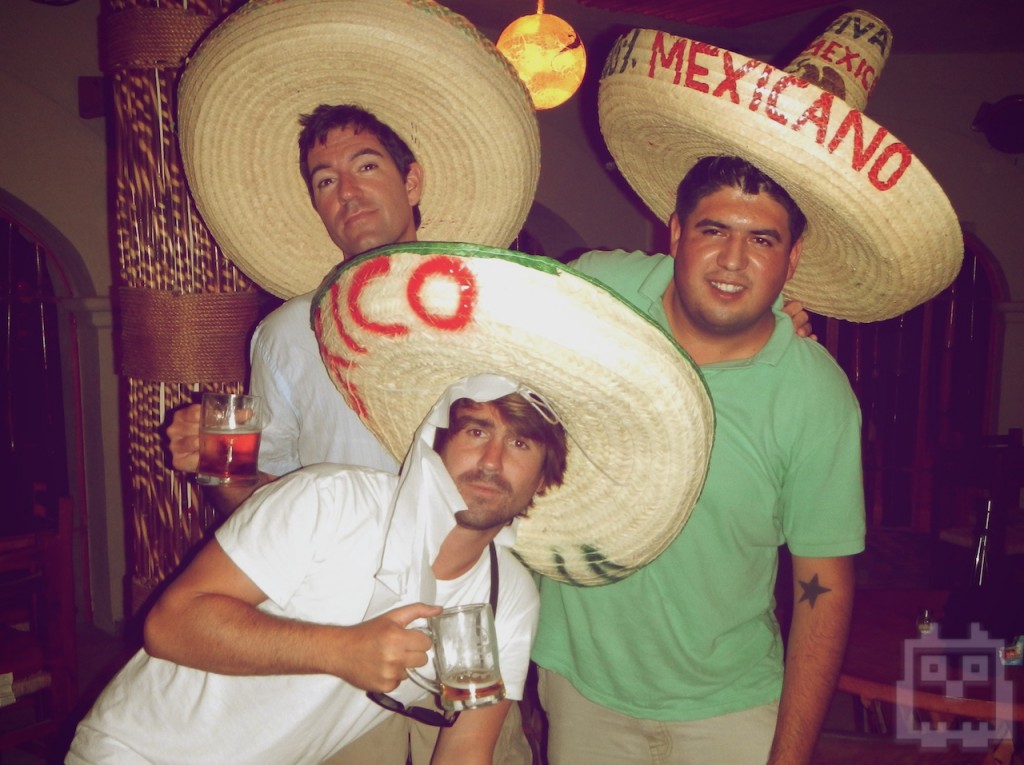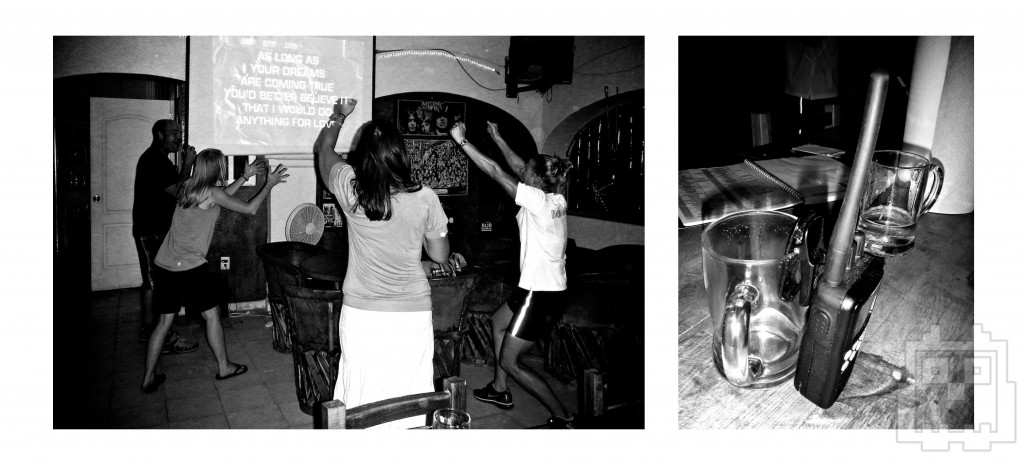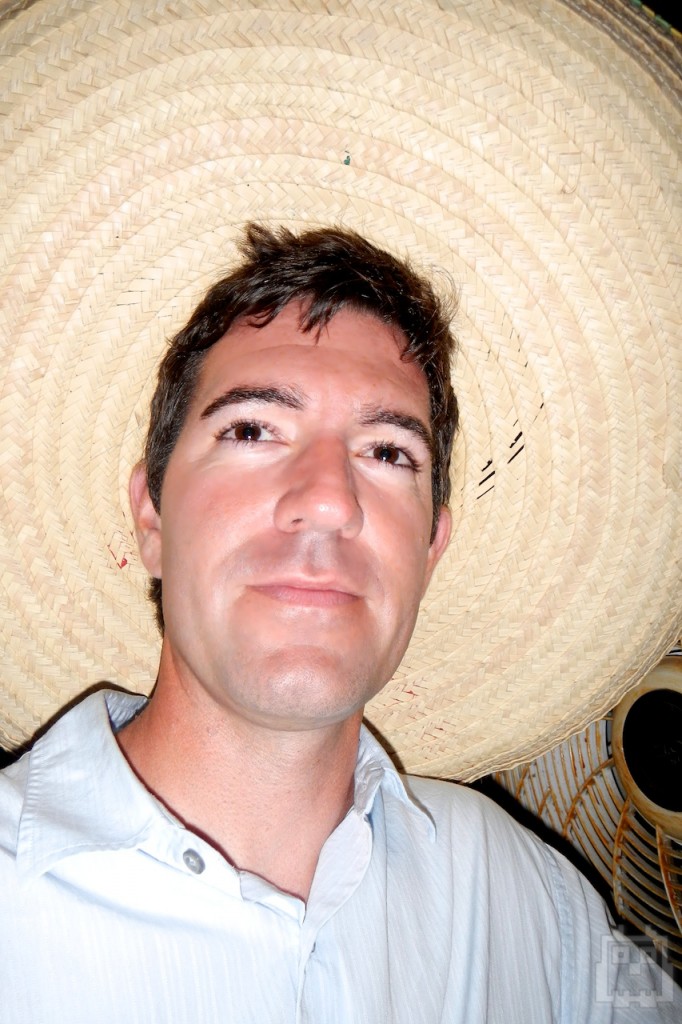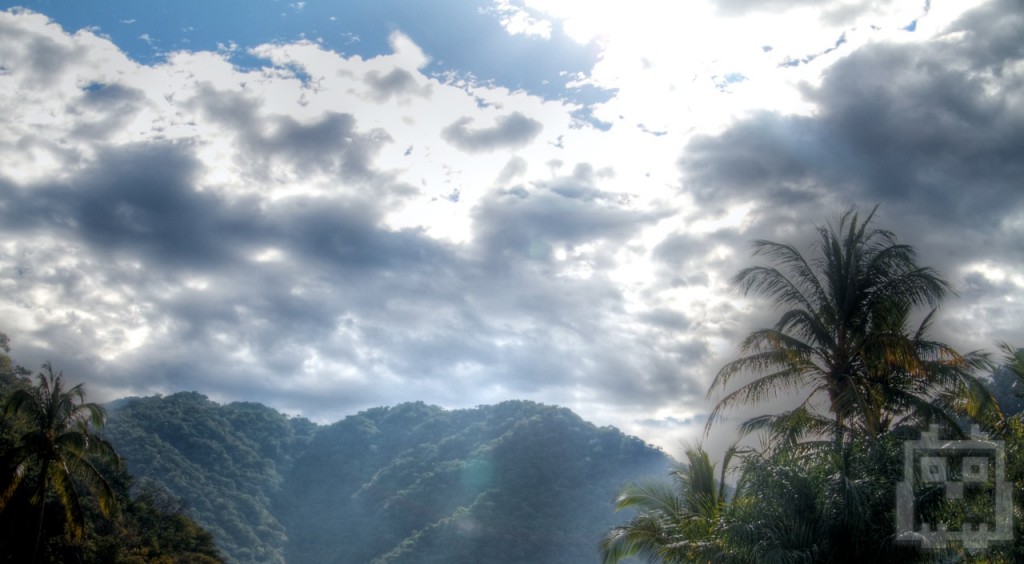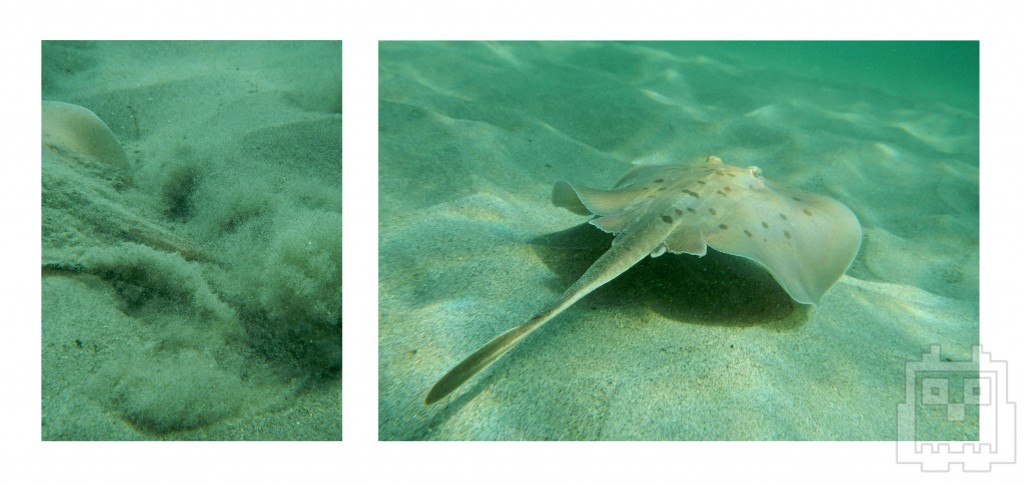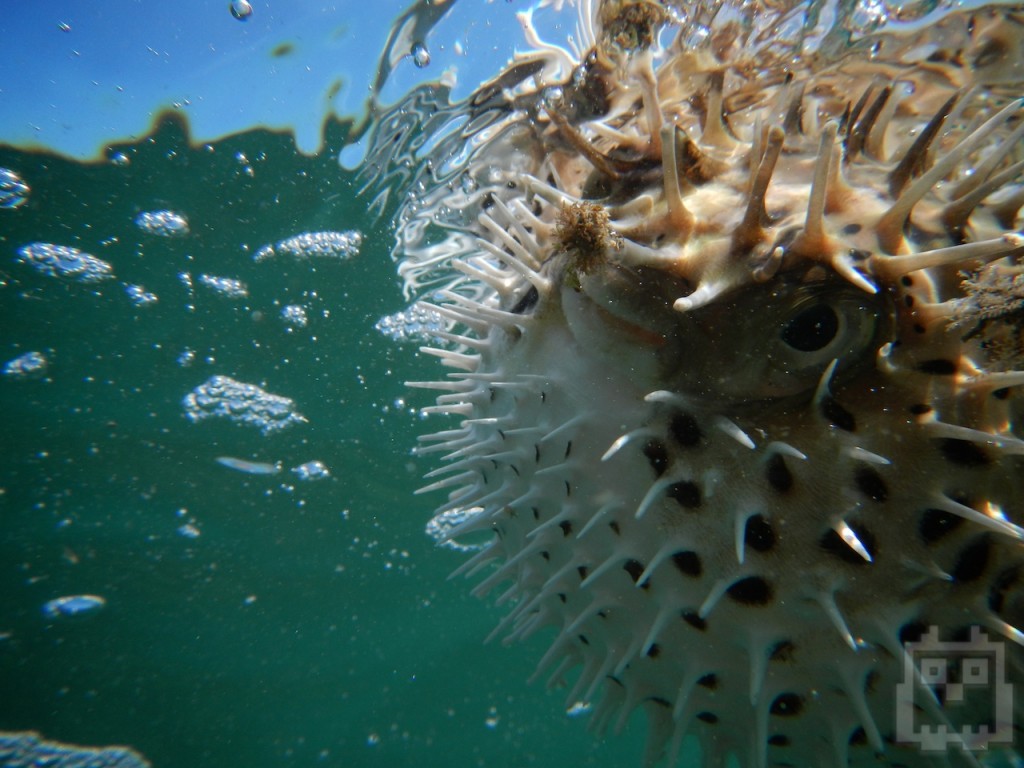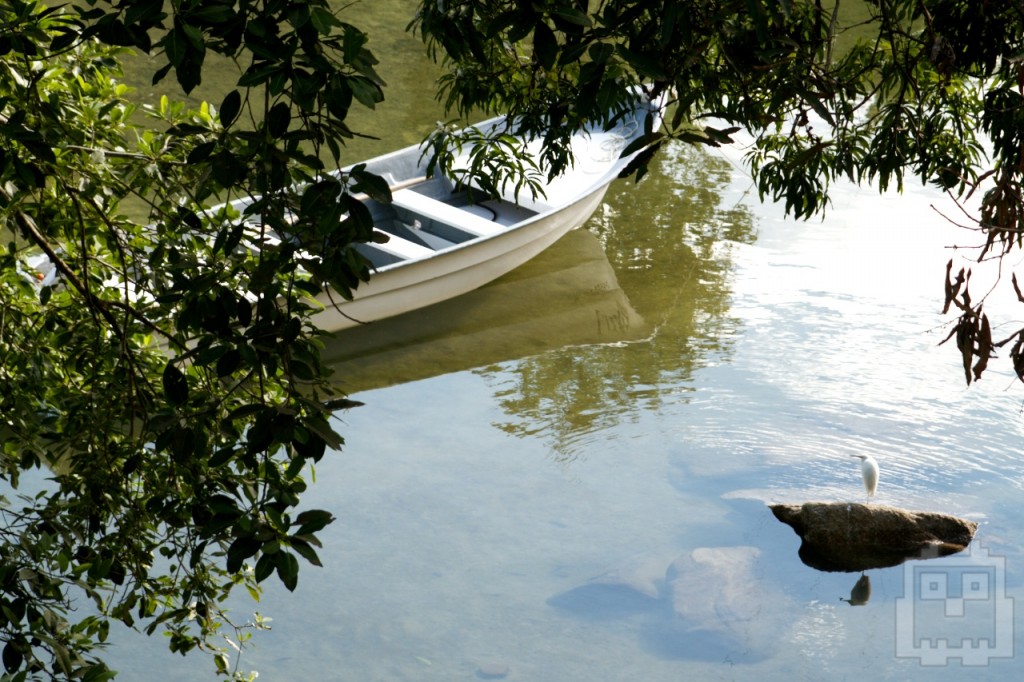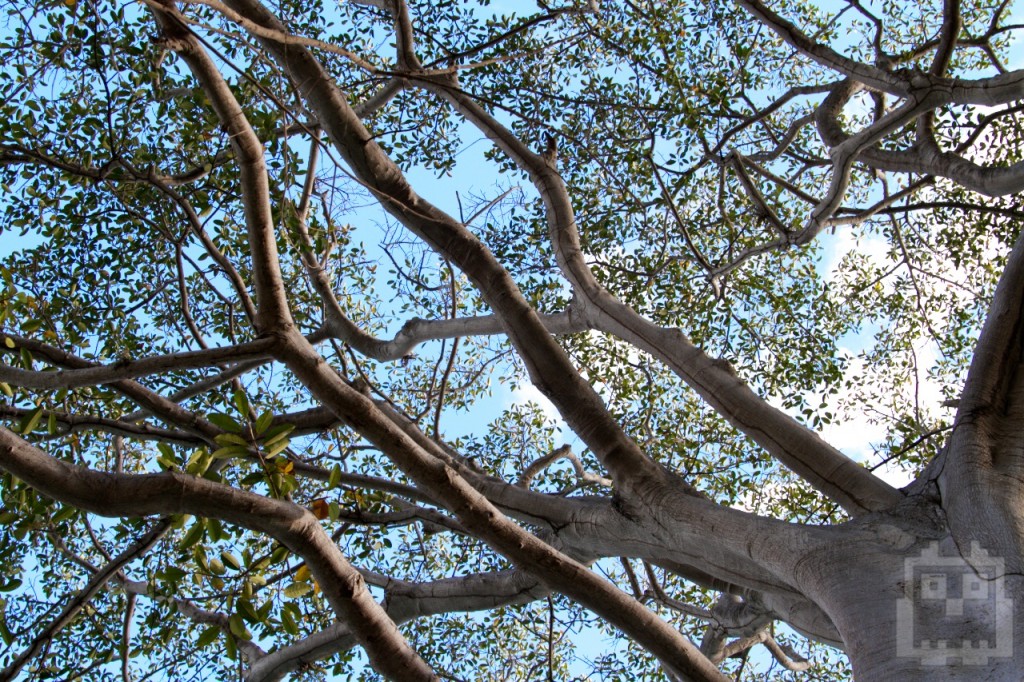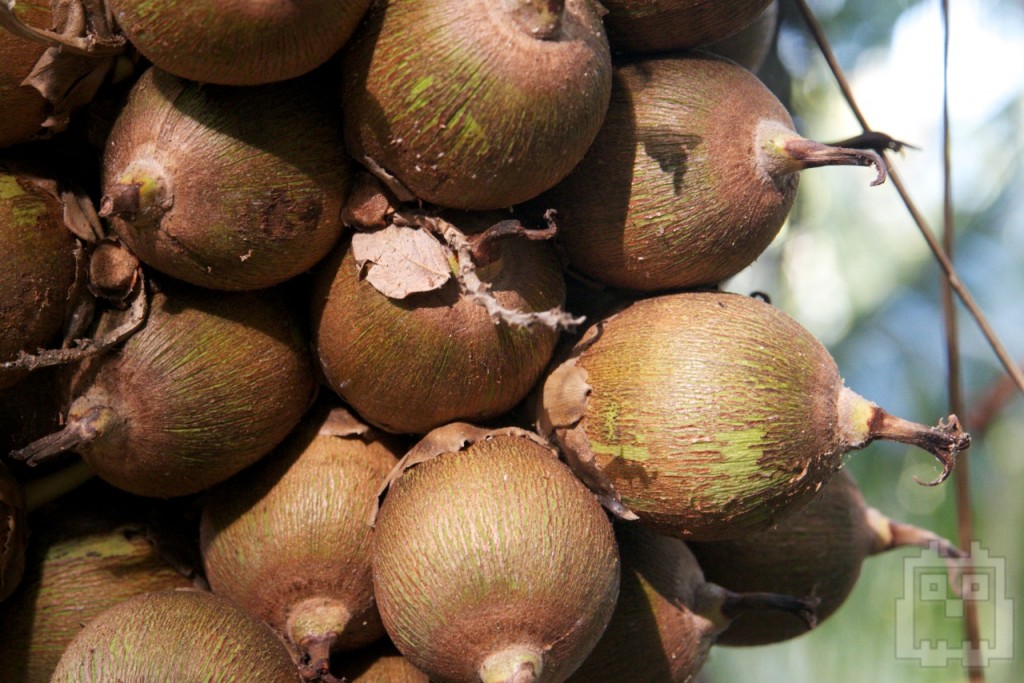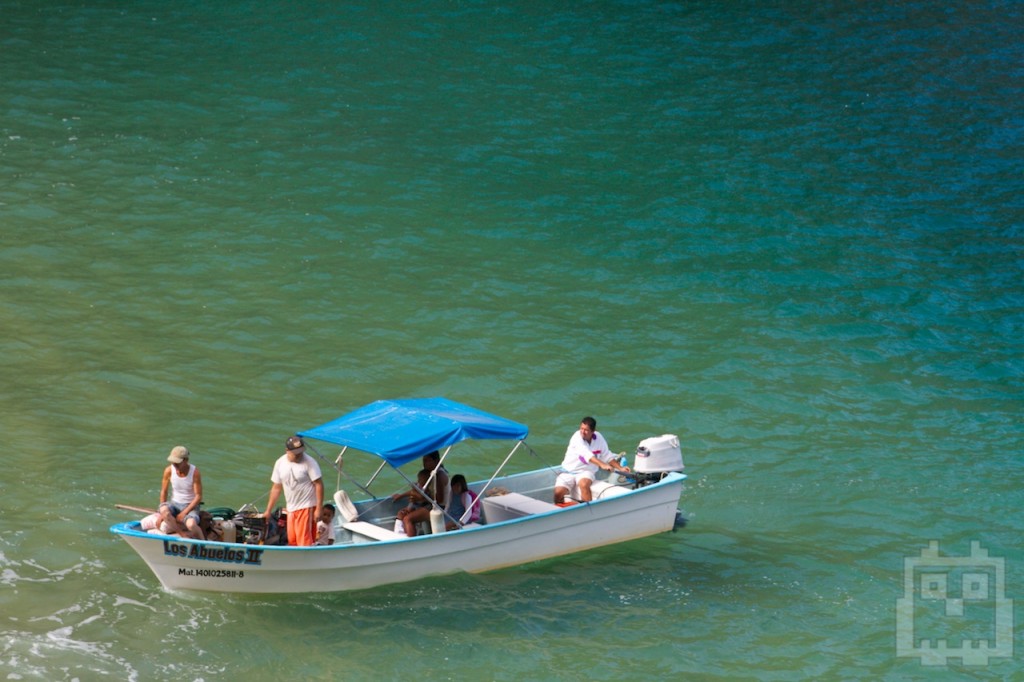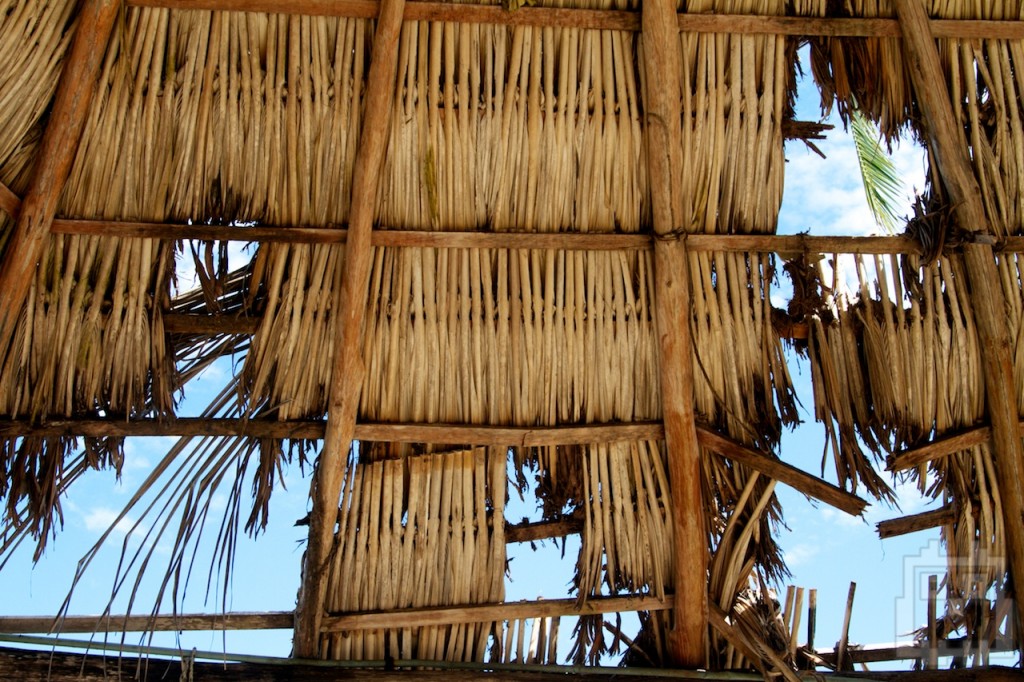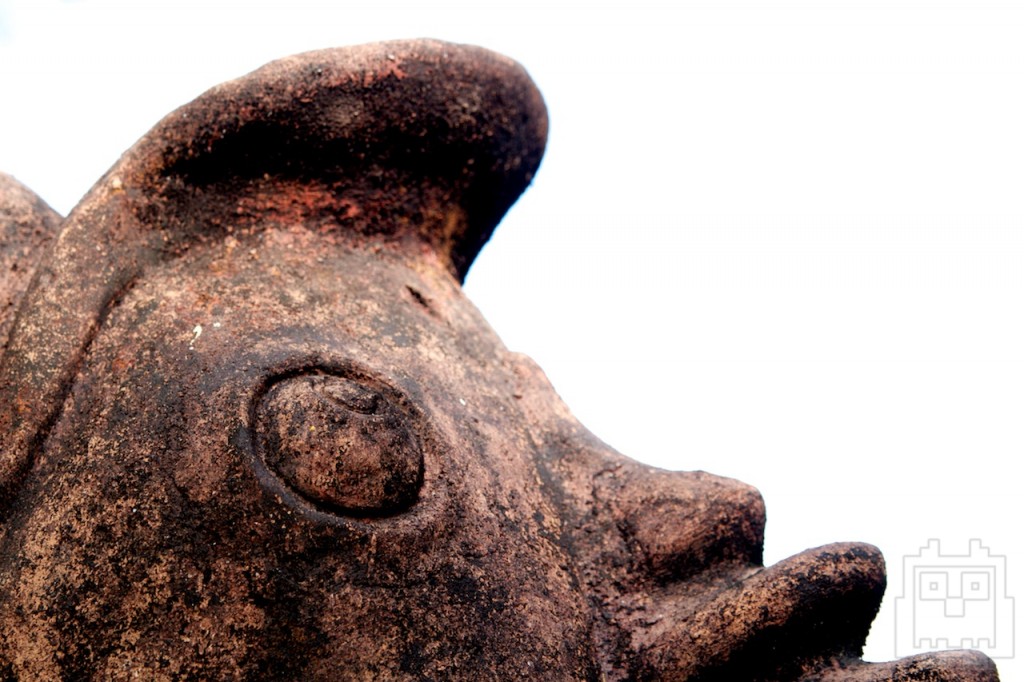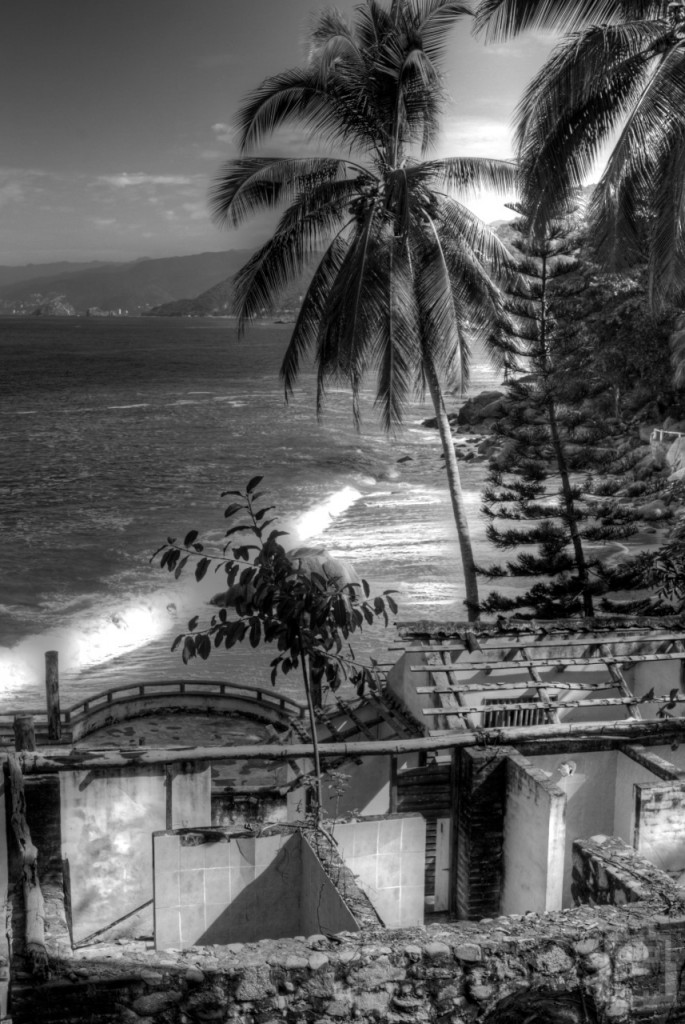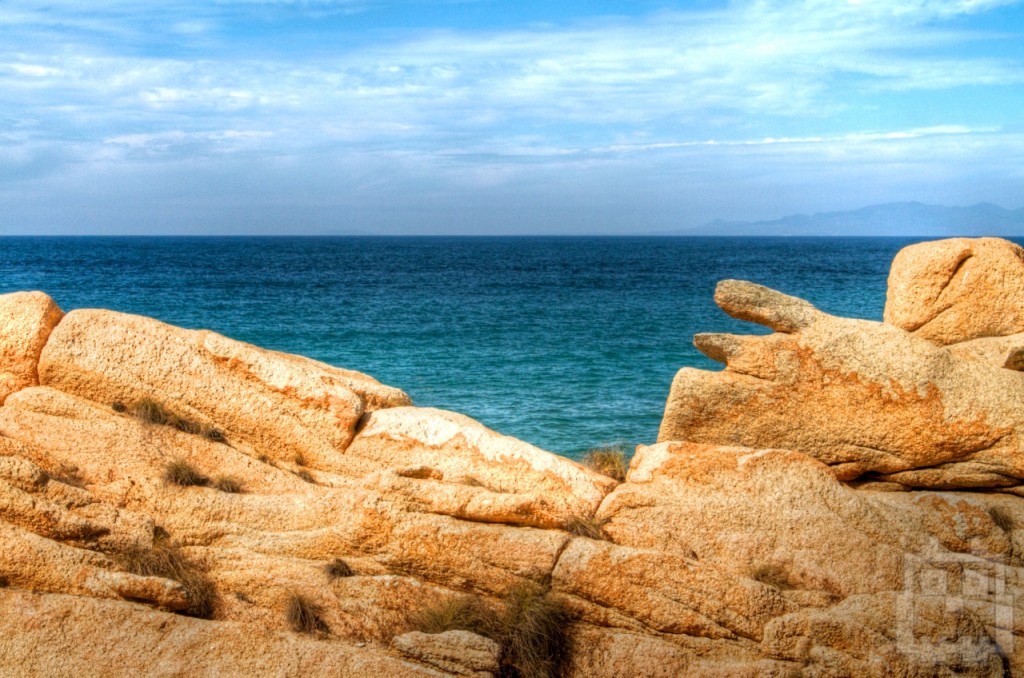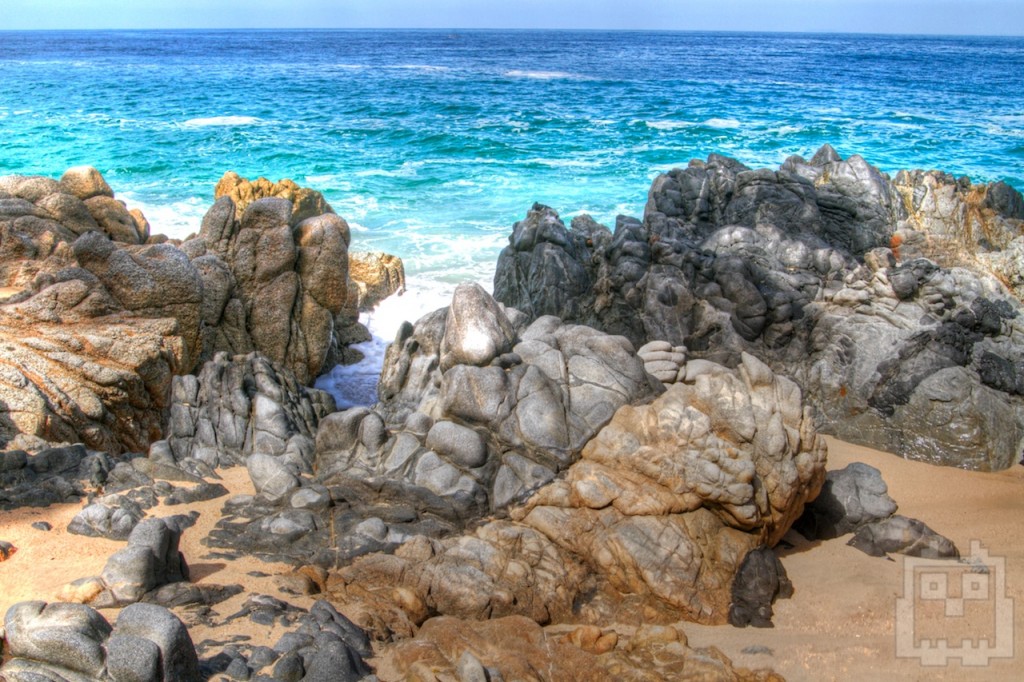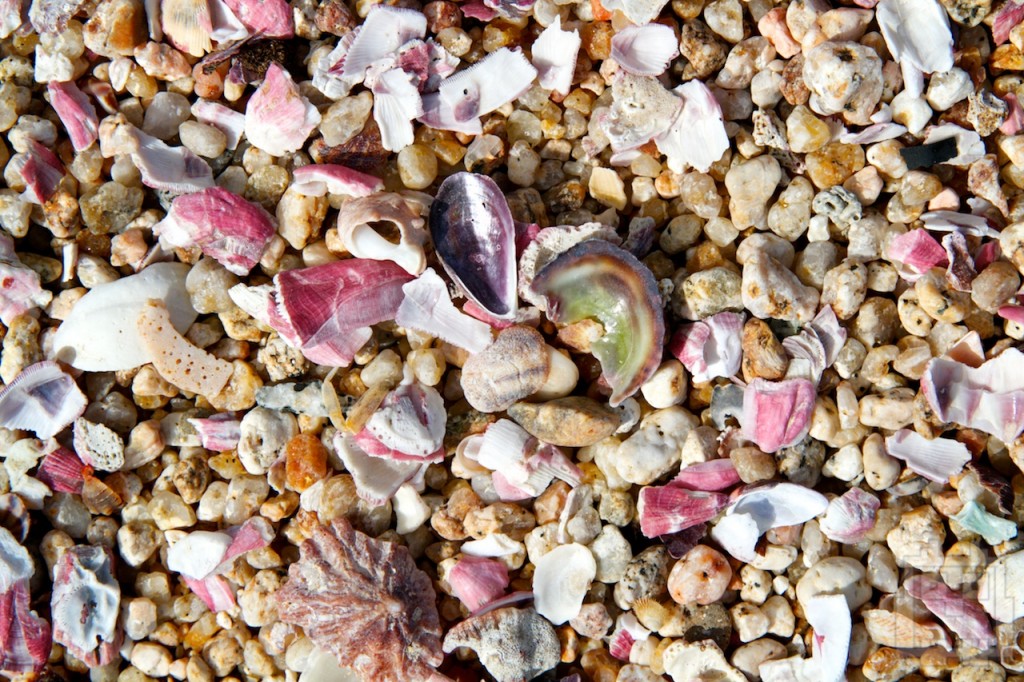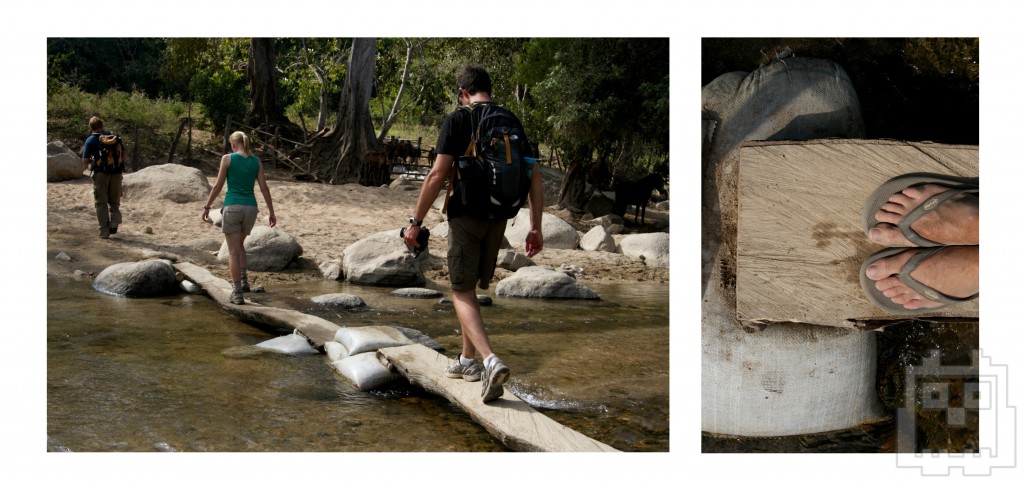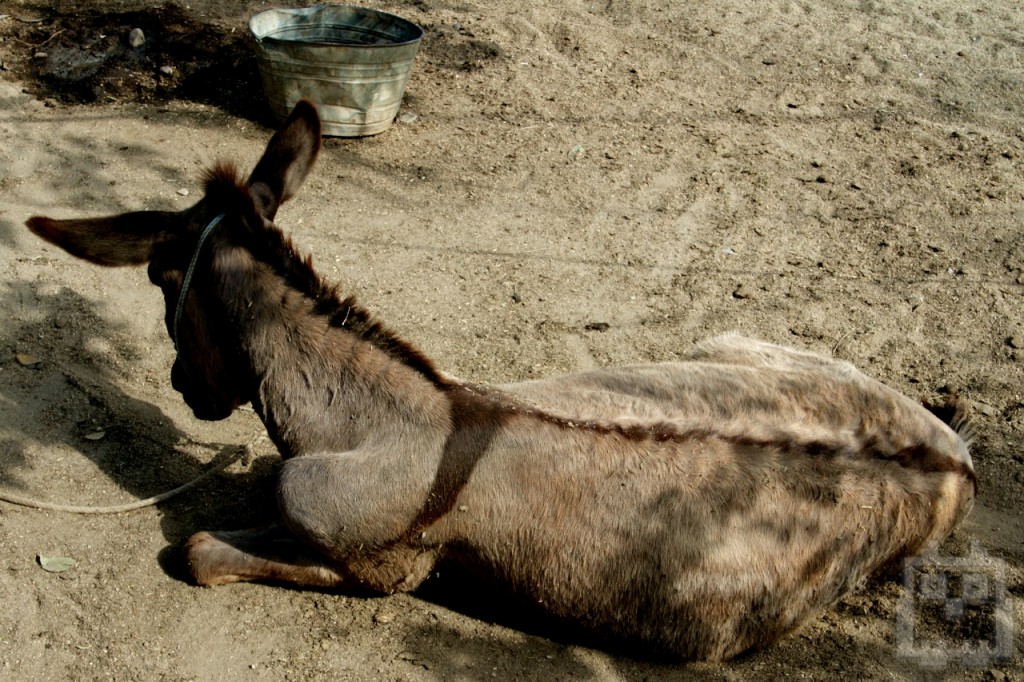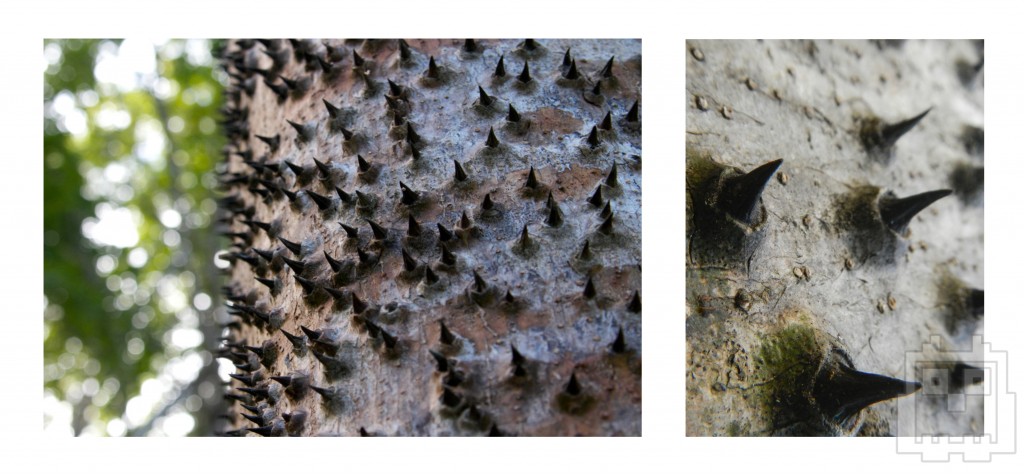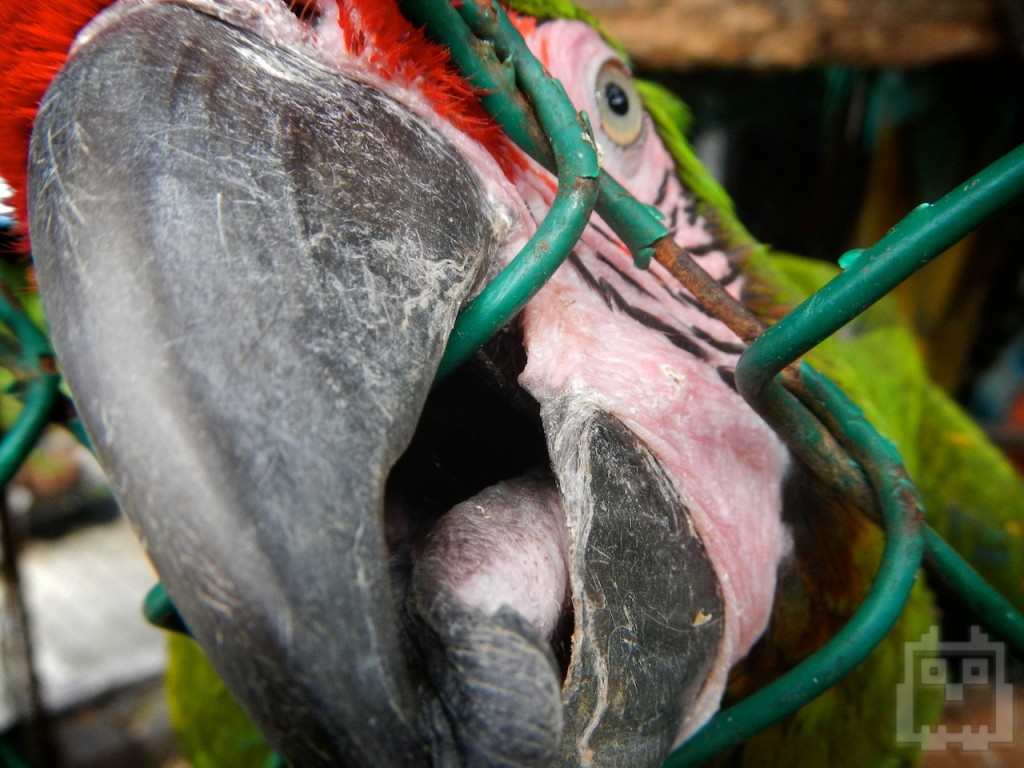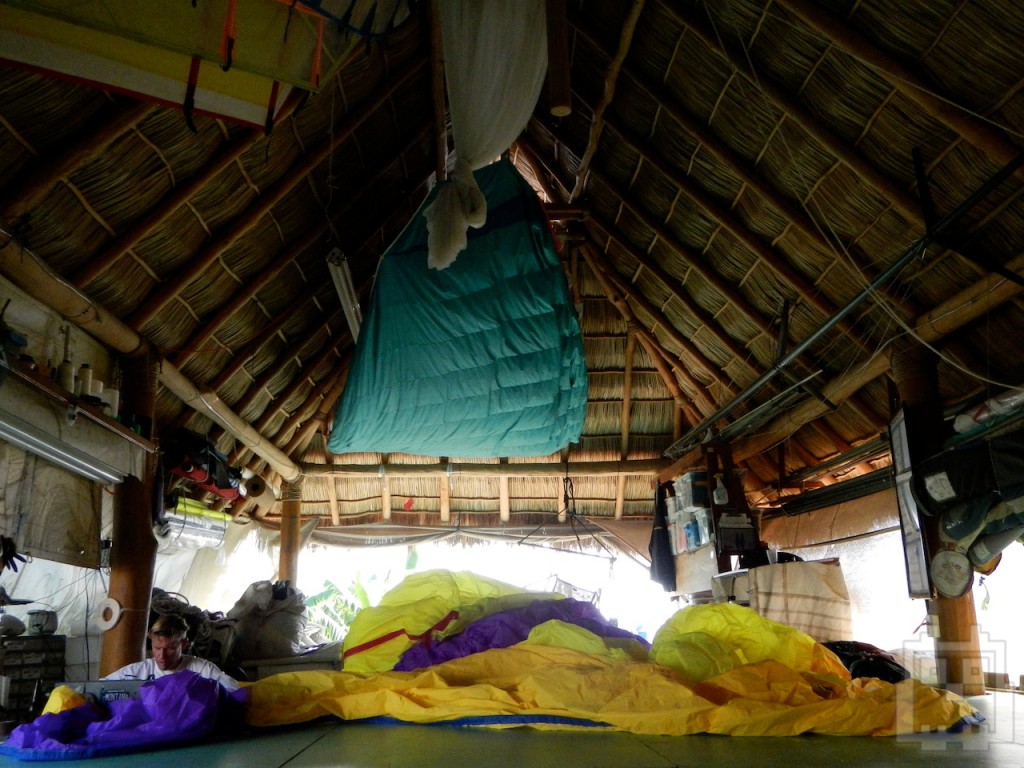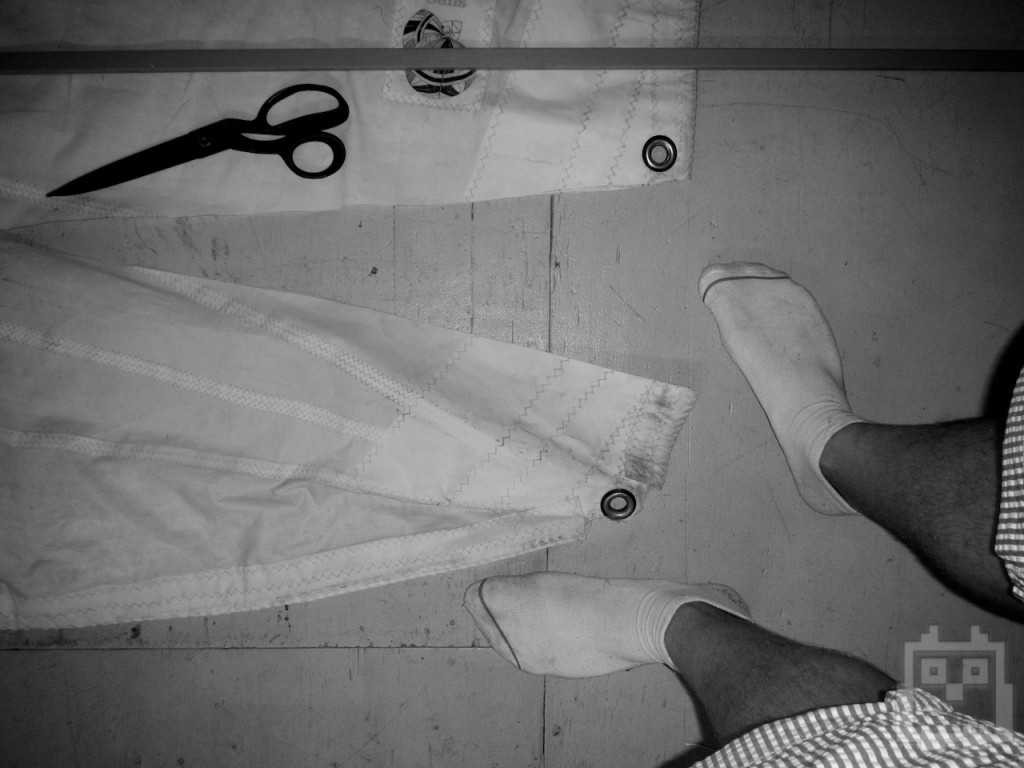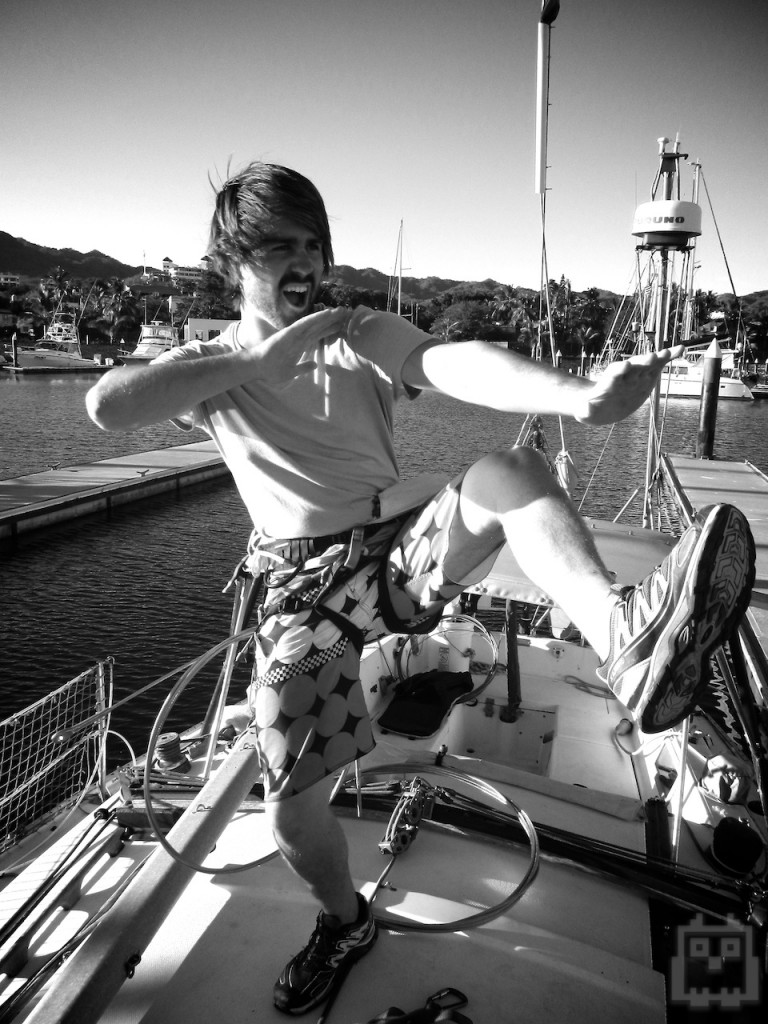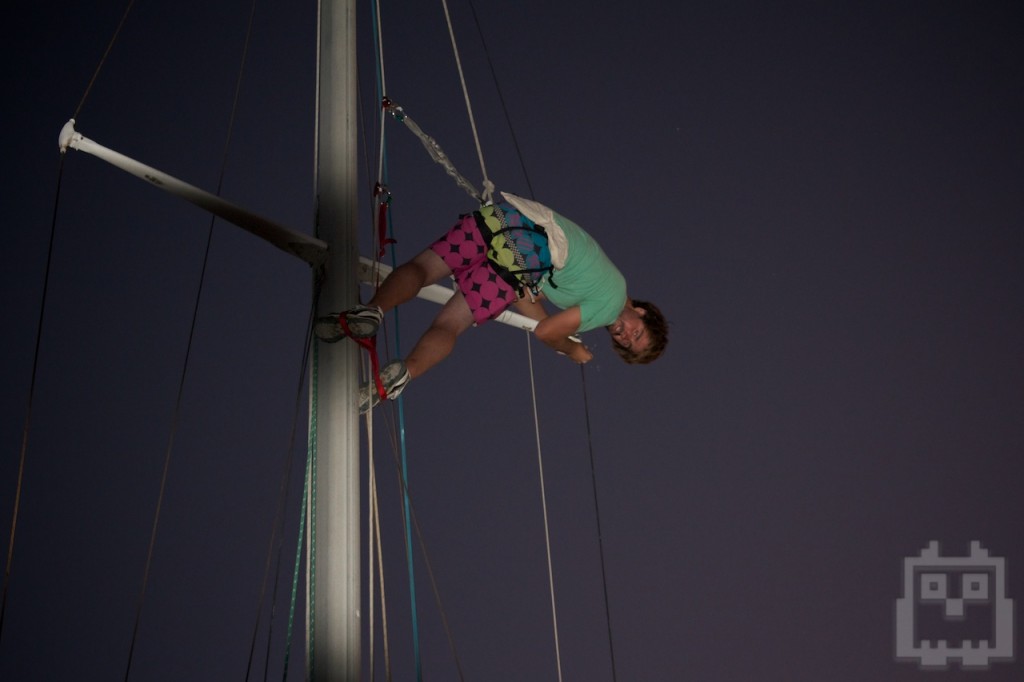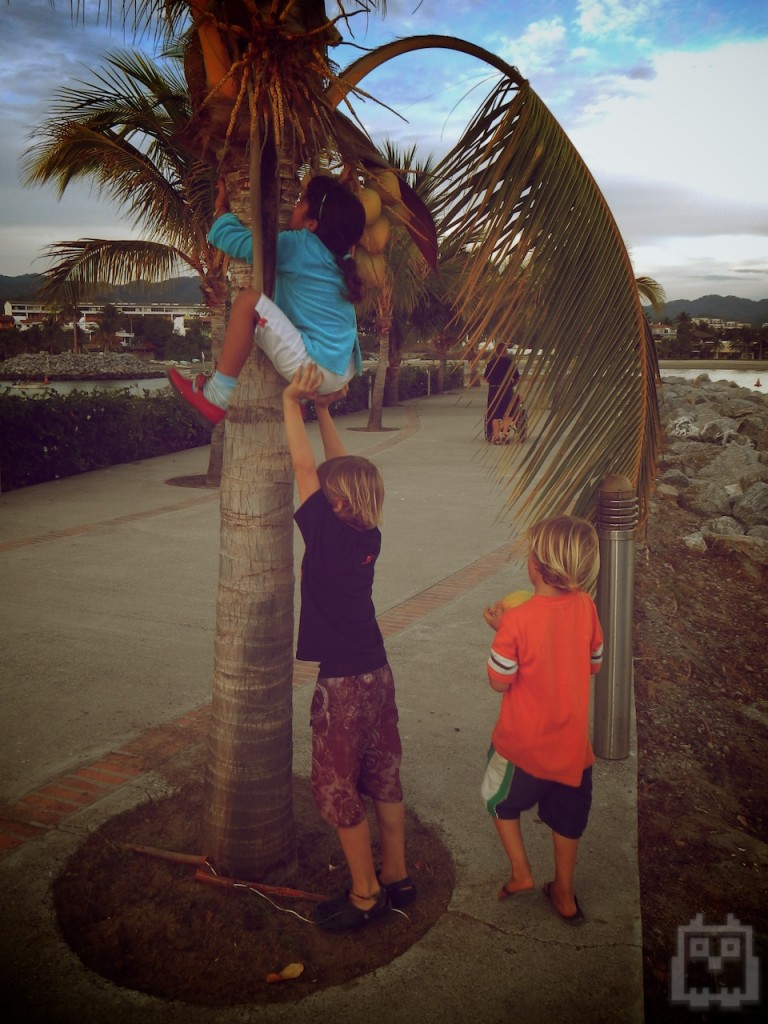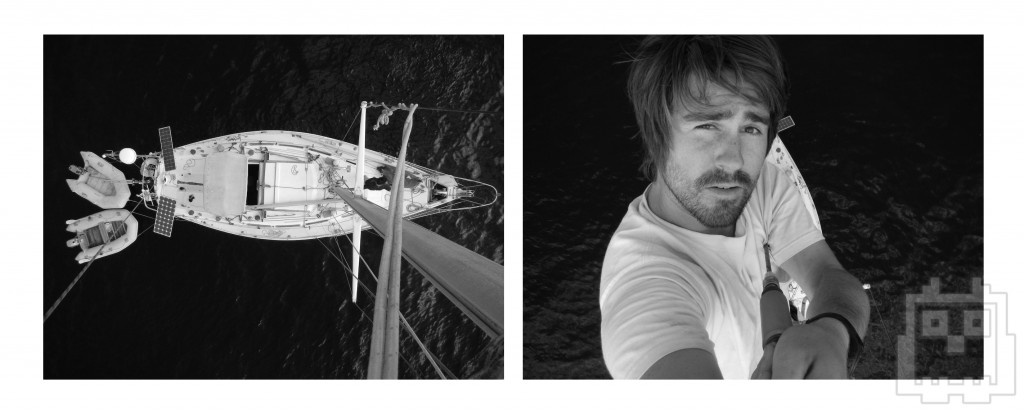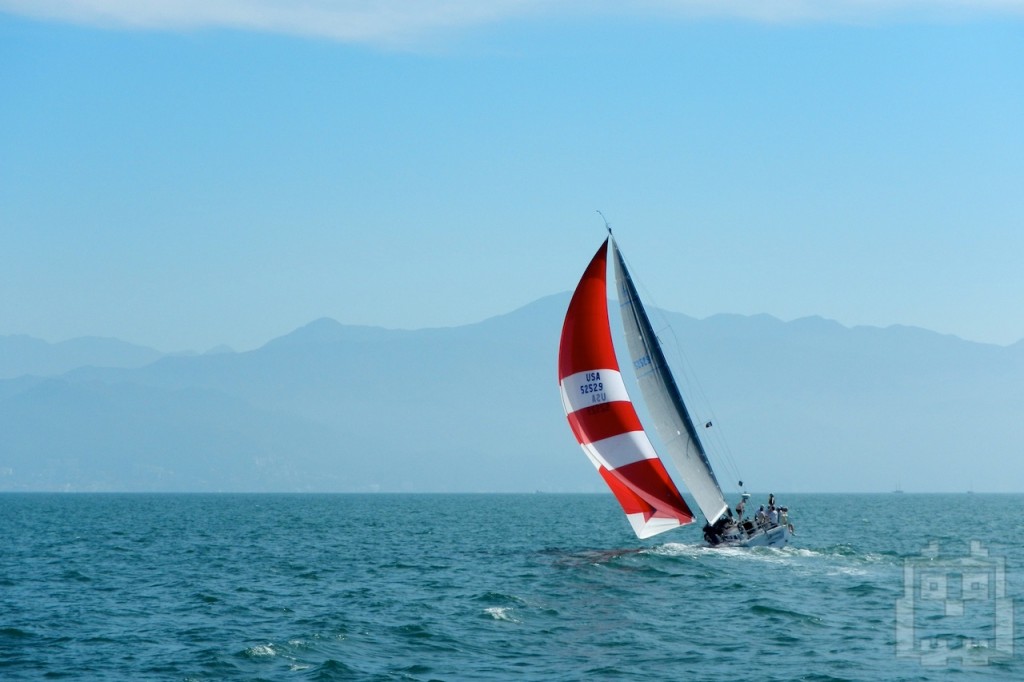Sail Panache
Strutting across the PacificBlog
To Chiapas, and Beyond!

****This is an old post, but a necessary one. Sorry for the late update****
Chiapas represented two things for Panache; the last stop in Mexico before crossing into El Salvador (I decided to skip Guatemala), and a well-needed oasis after tackling the feared Golfo de Tehuantepec. The Tehuantepec has a certain mythology about it for being vulnerable to hazardous winds that have been recorded in the 100 mph range. Mexico becomes a narrow landmass that separates the Pacific Ocean and the Caribbean, and this creates a wind funnel for weather crossing over from the Caribbean. It can get pretty ugly, so sailors crossing the Tehuantepec pick their weather window carefully. A bunch of El Salvador Rally boats and I were waiting in Huatulco, the northern edge of the Tehuantepec, for the perfect window to open. The window everyone ended up choosing turned out to be a little too big, because I ended up motoring the majority of the 225 nautical miles. Woof. It was a little anticlimactic. I wasn't hoping for 100 mph winds, but I was ready for them. I decided that if I got caught in some serious offshore weather, I would say “screw it” and head right for the Marquesas. Panache doesn't motor fast, and sometimes I don't motor at all on the principle that Panache is a sailboat. But sometimes you just need to get there, and I would hate to have this huge weather window close on me. So I motored. I was one of the last to arrive in Chiapas, and I arrived in the middle of the night.
I DSC called Bella Star, ignoring that it was 4 in the morning, and a groggy Nicole answered to help me navigate the curving manmade estuary where Chiapas Marina was located. The combination of sleep deprivation, shallow banks aplenty and no moon made for one confused skipper. After going every direction but the appropriate one, the power of deduction kicked in and I concluded the marina was through a small dredged canal slightly larger than my boat. It was low tide, but really? “Yeah, it looks ridiculous, I know,” Nicole reinforced with a yawn. I held my breath and kept an eye on the depth that never went below 17 feet. I was now in a larger canal that was lined with pretty rocks. Ok, this looks a little more legit.
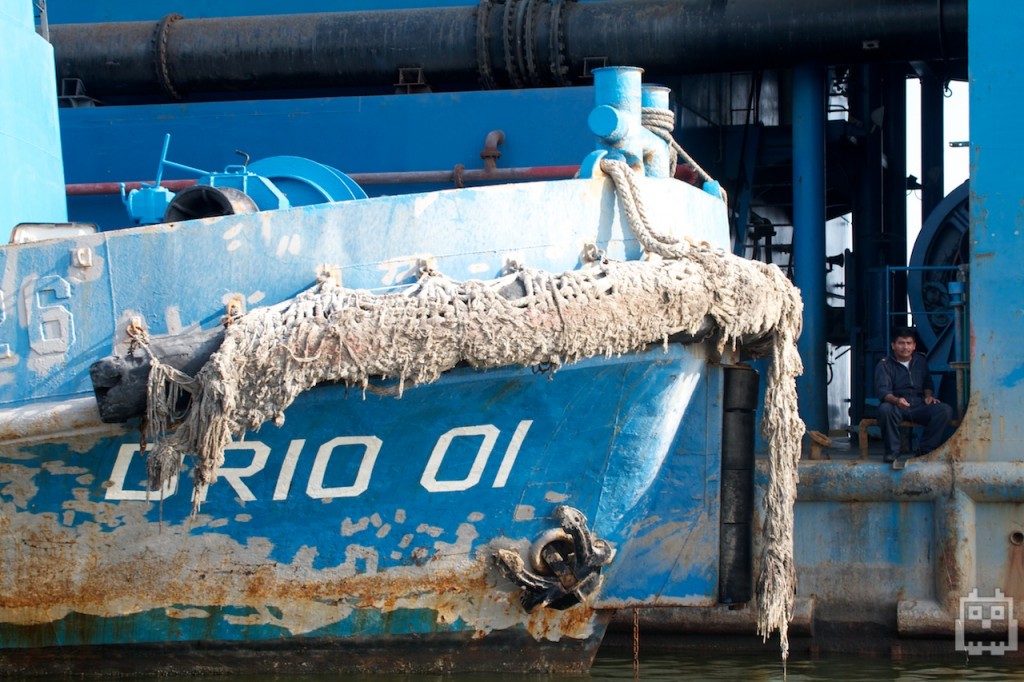
Chiapas Marina is a moderately sized facility that is very much in the works. It has a Travelift (in production), a restaurant (in production), a tienda (in pre-production) and showers (very much in working order). Because the marina was still being built, the owners hadn't bothered to charge anyone. I guess they were going for the positive word of mouth advertising strategy. Naturally, out of all the free slips, I chose one next to Bella Star. I’m like that neighbor that you can’t get rid of. This time I had a dock finger separate our boats, because in Huatulco someone re-tied my stern line and Panache got hot and heavy with Bella Star’s varnish. No harm done, but I still liked the divider. Close, but not too close.
And so it was the El Salvador Rally Chiapas crew, a total of 8 boats: Espiritu, Bella Star, Stray Cat, Bravo, Knee Deep, Blythe Spirit, Talaria and Panache. Everyone had a similar agenda – spend your remaining pesos and squeeze the last bit of Mexico out of Mexico. It didn't really matter how long we stayed because the marina was free! The place even had shore power, water and shoddy internet – a Mexican staple. For all the included amenities, it was pretty hard to complain when the power went out or when illegal downloads were taking too long. Despite the mild inconvenience, the management always went out of their way to apologize. Pretty cool group of guys. In talking with them, you could really see the whole place all laid out, even with the current cruiser grunge classing up the place. I am excited to see the Chiapas Marina when it’s all finished.
A local tour guide visited the marina to tell us a little bit about the tours he offered. The state of Chiapas boasts that it produces huge amounts of coffee. So for the Seattle boats (Bravo, Bella Star, and Panache) a tour to a coffee plantation (or finca) was a necessity. I considered the tour too expensive, but like any drug, my addiction to coffee overshadowed my budget, so I decided to go.
The fact that I was going to be drinking coffee all day didn't stop me from creating the coffee concoction that helps me hang on – instant coffee, non-dairy creamer and a spoonful of sugar. Because it was my last stop in Mexico, I added a dash of cinnamon. Can you say cultured? The bus ride was standard issue until we reached the real road to the plantation. I use the word “road” lightly because it was more like an obstacle course for cars. After 30 minutes of this my butt was numb. It was an interesting sensation that was “just part of the tour,” our guide told me. When we arrived, cool, crisp air greeted us. I couldn't help smiling. It felt sooooooo good to escape the sticky, hot air without using a dry air conditioner. This air was thick with moisture. The tour included a beautiful breakfast with, you guessed it, free refills on the coffee. Being from Seattle I assumed I was born with a natural immunity to caffeine. My previous coffee drinking experiences have reinforced this idea, so during breakfast I slugged back 5 cups of coffee. After breakfast I was seeing colors I had never seen before. The greens were greener, and the blues bluer. I was beyond alert. All the better for the tour.
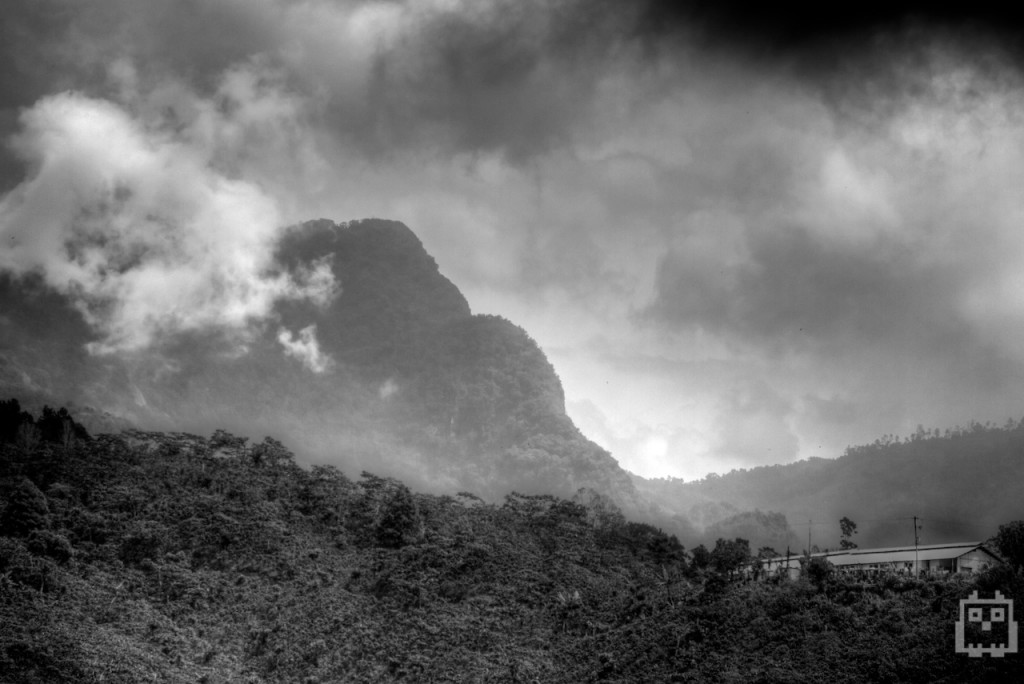
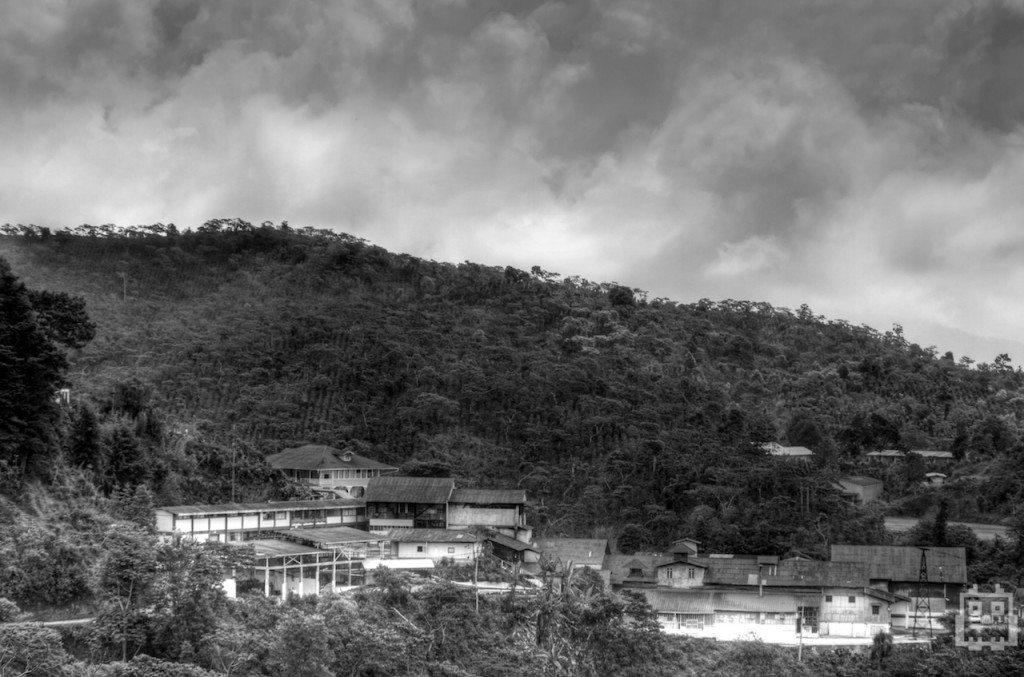
The history and process of this particular finca was quite interesting. It was pioneered by a German family who loved products with high mark-ups, and coffee certainly fit the bill. Generations and generations of the Hamburgo family honed the process of growing, harvesting, getting the beans to the processors, stripping off the fruit, drying, sorting and shipping, and today they provide beans to well-known coffee companies such as Peet’s. We were inducted through all these steps and were then provided a hearty lunch as a topper. I was a little pissed when coffee wasn't served, but I guess that was just the withdrawals talking. A light rain started to drizzle as we were collecting ourselves to return to the hot, sticky lowlands, and I suddenly had a sensation of envy for all the people who were back in the Pacific Northwest enjoying a similar mild, cool climate. Then I got wet which was a terrible experience, so I waited in the car impatiently for everyone else.
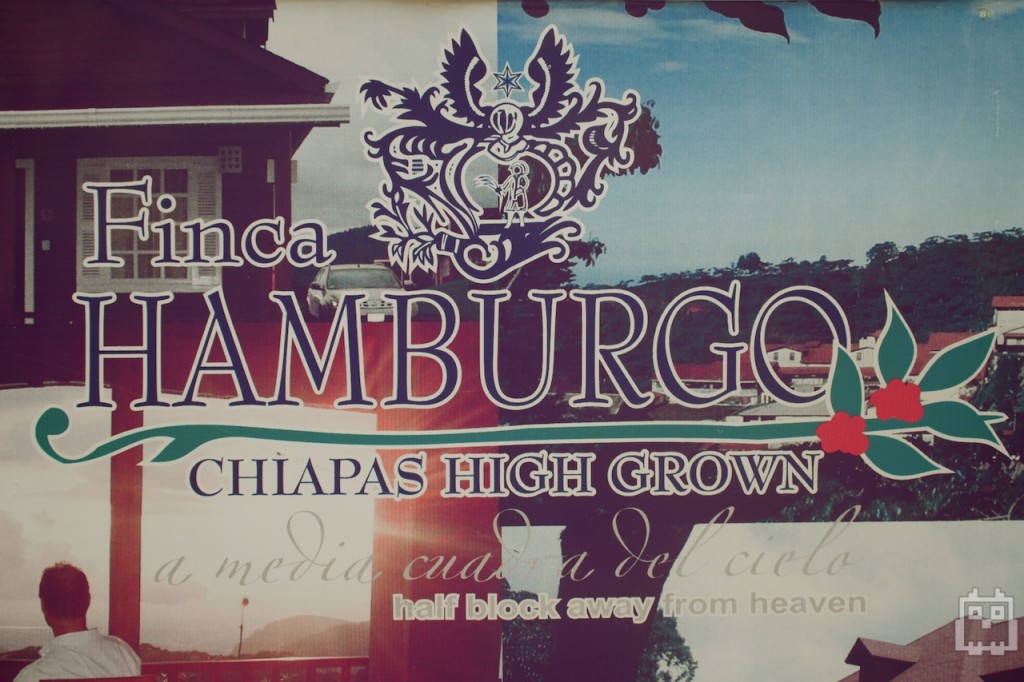

The longer we stayed at Chiapas Marina, the more we complained about it. I know it was free and all, but hey, if someone can find a flaw, it’s a cruiser. People complained about the power being intermittent and how the Marina was impossibly isolated next to nothing, but I personally had a problem with the texture of the newfangled ramps leading to the docks. Call me old fashioned, but I like a solid wood plank. The seclusion, however, was an actual issue, especially because El Salvador Rally participants were told that supermarkets in El Salvador don’t stock the wide variety of foods Mexico supermarkets do. Allegedly El Salvador don’t have hot sauce!? This being a travesty, we cabbed it (twice) to the Wal-Mart for provisioning runs. I bought all the ramen I could find, some handy solar yard lights to use as anchor lights, some hot sauce, and a new stereo for the one that decided this cruel world wasn't worth it.
With no pesos in my pocket it was time to leave Mexico behind. You would think that a country like Mexico would have a very simple check-out process. This is untrue. Dogs are involved. You have to go to four different places. You have to pay lots of money. How ridiculous is it that you have to pay more money to leave Mexico than you do to enter!? Genius. The process took all day and was literally the human version of the board game Mouse Trap. Oh, sorry, you don't have form 1097URNOTFUKD, well that will be another $20. Thank fucking gosh I had form 1097URNOTFUKD, but Aaron wasn't so lucky.
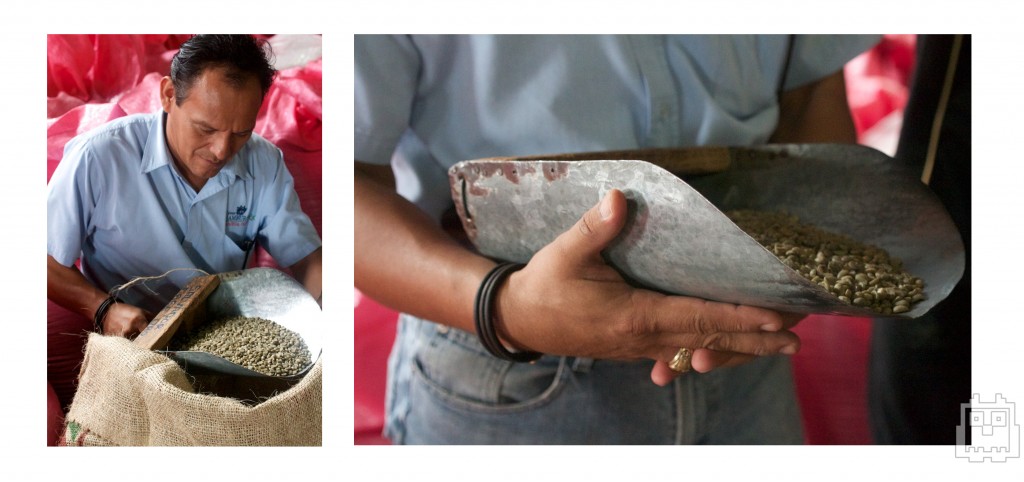
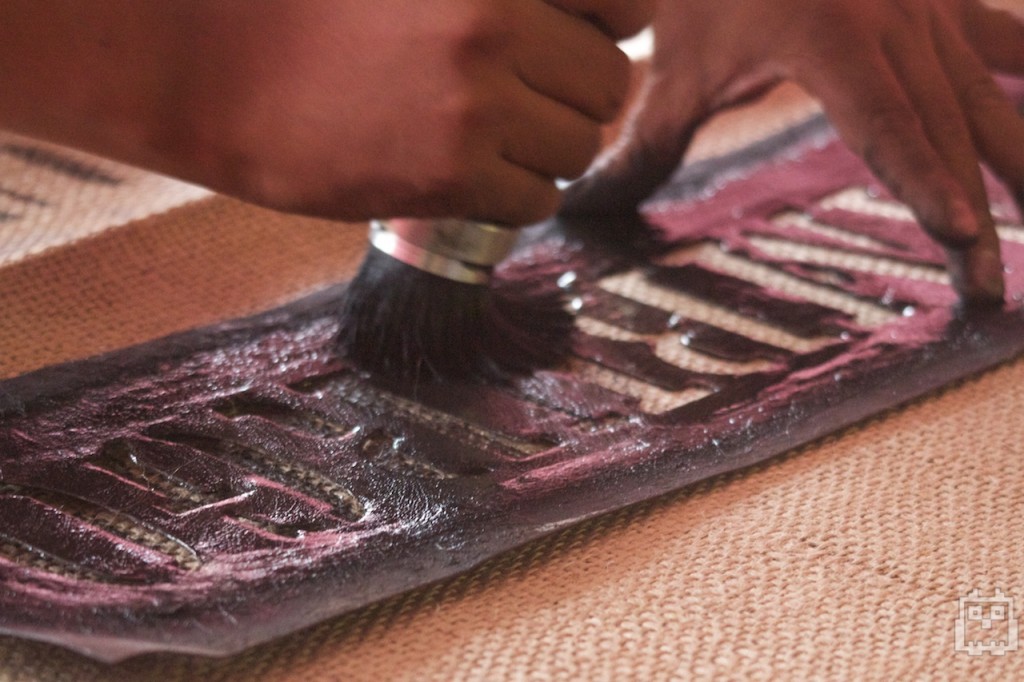
Man > Machine. Fact; we get our cheap labor from Mexico, and Mexico gets its cheap labor from Guatemala.
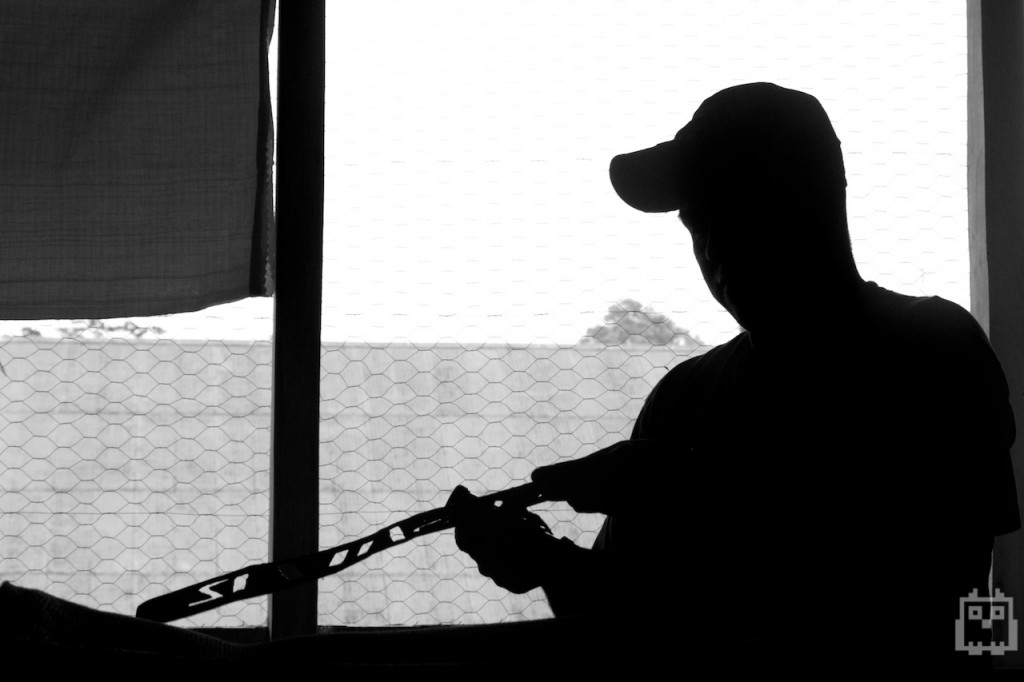
When the sour taste in my mouth from checking out faded, I headed back to Panache for my last night in Mexico. It wasn't crazy, or exceptionally Mexican, but it was relaxing and gave plenty of time to reflect on what a great county Mexico is to cruise in. With so many good spots to stop, I can see why some people never leave. The next morning, I was that person who decided not to leave. I kept finding just one more thing to get situated. Sleeping in also didn’t help. I waved goodbye to Bella Star and Bravo as they left and looked around the deserted Chiapas Marina. I ended up being only an hour behind, and when I got on the water what proceeded was one of the best sails in the history of the Earth. Why? I was last to leave Chiapas but the first to arrive at the sand bar entrance in El Salvador. Bravo and Bella Star will be the first to point out that they had to “slow down” so they wouldn't arrive there too early (you can only enter the estuary at slack high tide). Bull. Panache is a speed demon that crushed the competition. It wasn't a race, but rule one of sailing states: Sailing is always a race. Seriously though, some crazy current was adding 2, sometimes 3, knots on top of a downwind sprint. I was making a consistent 7 knots, would occasionally dip to 6.5 and hit 8.3 knots several times. I was loving it and wasn't about to give up any speed. I ended up waiting at the entrance with a smirk on my face as I watched Bravo and Bella Star come join the party. Arrival order apparently means nothing, because when it came time to cross the bar I was last. More bull.
After riding two waves into the estuary, I was finally in El Salvador. I pulled up to the dock at Bahia del Sol, checked into the country right at the hotel in less than 30 minutes (way to show up Mexico, El Salvador!) and was ready for my complimentary drink. It was El Salvador Rally time, where every day is like every other day, and relaxation is your job. Unless there is a microburst.
Bumming Banderas Bay
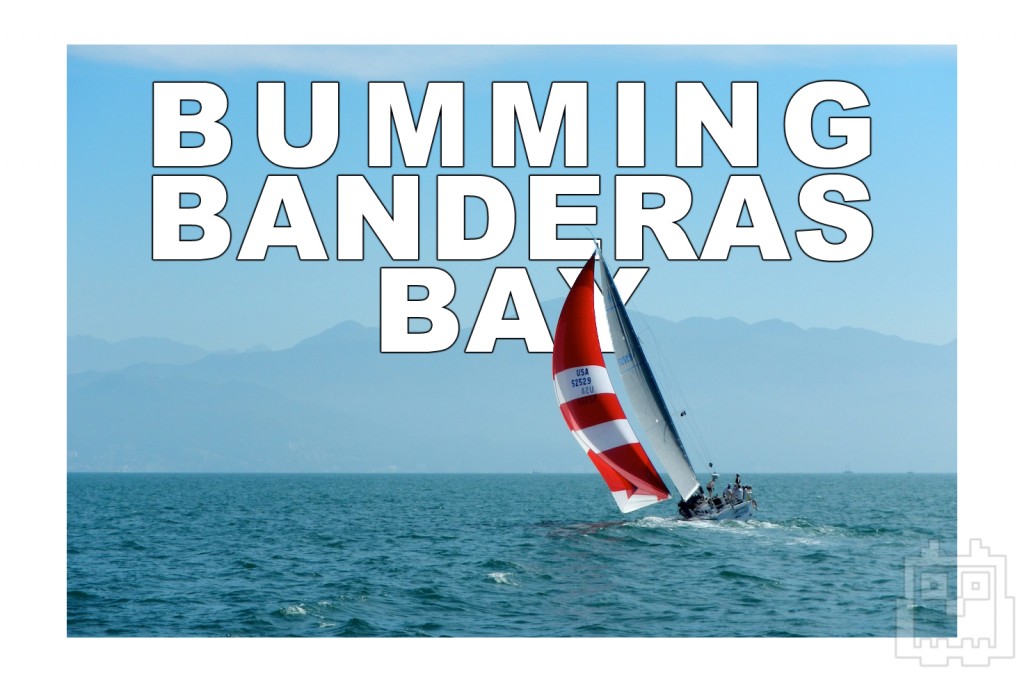
Banderas Bay, La Cruz Huanacaxtle, was my home for a little over a month. Well, technically Panache was still my home, but La Cruz was my home port for a month. Panache stayed anchored out in the moderate swell, and my days were spent slowly getting things ready for the continued trip south, enjoying the best happy hour in Mexico (TEN PESO DRAFT BEER!?!) and generally unwinding. If there ever were a time to relax, it was in La Cruz. No plans, taking on my shopping list of projects at a glacial pace and generally trying to fit into my foreign surroundings. After a month in La Cruz my Spanish was still terrible (every Mexican wants to practice English!), but I did make many new friends and had a great time. The positive gravity of La Cruz made leaving a truly difficult act.
When James and I first arrived, we were relieved to finally be able to sit down for the sheer sake of sitting down. Sailing is fun, but after a long passage, anyone would be pleased with solid ground and more than 30 feet of boat to move around in. Me being in Mexico gave my parents a perfect excuse to come down on holiday. They were waiting for us in Sayulita, a smallish surfing town 20 minutes north from La Cruz. Anchoring Panache securely in preparation for a week-long trip to Sayulita left me with a pit of guilt in my stomach, like I was leaving my dog home alone indefinitely. Thank God Panache doesn't whine. I let out more than enough chain, moved away from other boats and called it good. We hitched a ride into shore with Brian and Steven from Go For Broke, a huge steel monster of a boat. They know how to have a good time and turned out to be heading up to Sayulita themselves.
The four of us snaked through town to the bus stop. That bus led to another bus stop a short run across eight lanes of freeway traffic. Welcome to Mexico. People call the buses “Mexican Roller Coasters,” and for good reason. The freeway, or any road for that matter, is not a road but a racetrack. The only difference between the Mexican interstate and NASCAR is that safety is not necessarily a factor in Mexico. This is not to say that the drivers are bad – I couldn't maneuver the elephant-sized bus through traffic the way the driver was! It’s just that the buses themselves make a spectrum of noises that could only be the vehicle deconstructing itself slowly. So, hold on tight.
Sayulita was great. My parents were great. New Year’s was great. Sayulita wasn't just an American tourist destination, if anything it was a Mexican tourist destination. Americans were outnumbered, which made me feel like I was in the right spot. This is where the locals go. One memorable night, James and I ran into a Mariachi band. Starring in amazement, a very drunk group of young Mexicans stumbled over to us. Between our bad Spanish and their bad English, we exchanged the usual who/what/when/where/whys while passing the largest bottle of liquor back and forth. First sip my throat tightened and shuttered. Did I just drink paint thinner? “What is this?” I asked with a forced smile. With crossed eyes, our new friend responded “MezzzzzzCAL!” Mescal... hmmm, it sounds illegal. Based on the taste alone it should be illegal. If you've never had the pleasure of trying MezzzzzzCAL, just think of cheap tequila. Cheap as in, they pay you to drink it. The mescal supercharged the night, so I can’t hate the drink that much. But this was the scene; everyone was from everywhere, and everyone was happily a tourist looking for a good time. I never got the “I’m a local and better than you” vibe that unfortunately poisons many of the great tourist destinations.
Being New Year’s, live music was a nightly occurrence. Being New Year’s, a tent city blossomed along the beach full of young people my age. And having a surf beach right at my toe-tips made New Year’s that much better. I spent New Year’s night with a German girl I met in La Paz, her friend from Austria, a Canadian and a crew of Australians. Thank God everyone spoke English. I ended up losing the group at one point during the night, but the other great part about Sayulita is its relatively manageable size. I ended up running into the group several hours later by accident. If you every take a trip to Aaron Maraschky and Ben Doolittle doing boat work. Vallarta, make sure you take a day trip up to Sayulita.
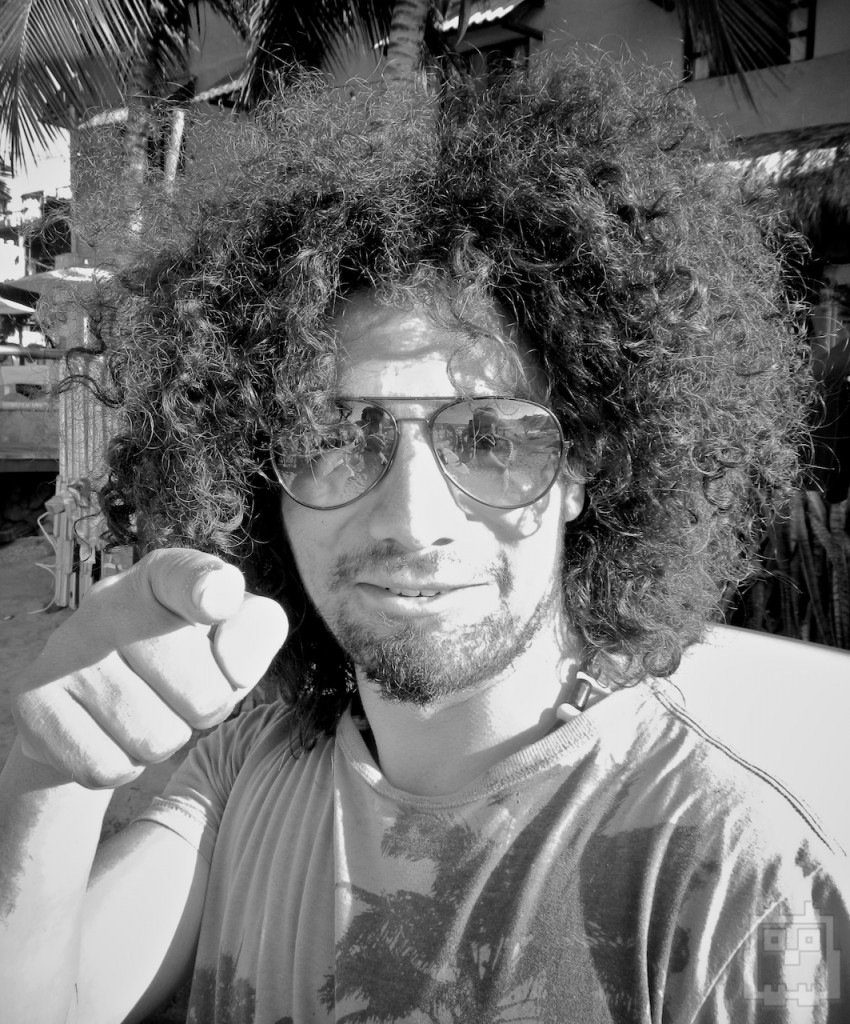
This dude is the doppelgänger of my good friend Jonh Schwartz. Watch out, your double might be in Sayulita too!!!
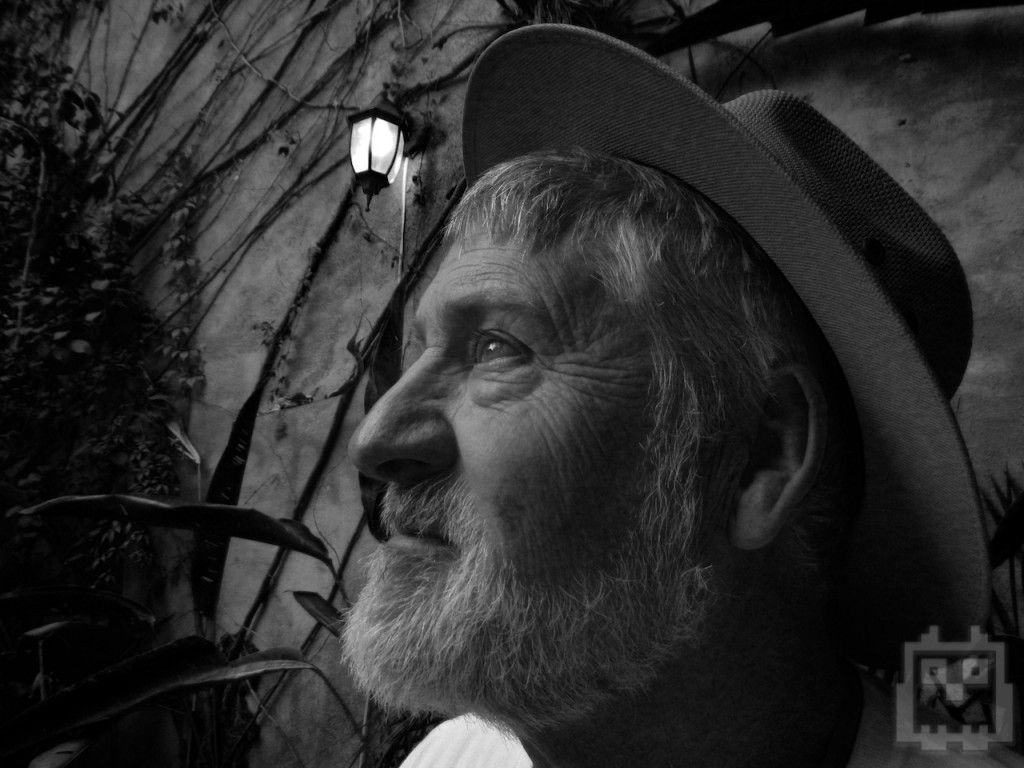
Back in Banderas Bay, the Vallarta Cup Race Series, was ramping up for the rest of the month. Every Saturday was a new race. I wasn't going to SailPanache, but Richard, the editor of Latitude 38, needed crew for his boat, Profligate, and welcomed me aboard as crew for the whole race series. The first race I was all thumbs; sailing a catamaran (a huge fucking catamaran at that), is much different than a monohull. Let’s go through the top 5 differences between monohulls and catamarans:
1. YOU HAVE NO BLEEPING BACKSTAY! In the middle of the first race I thought Profligate was experiencing some huge rigging failure. Alas.
2. Traveling at 8 knots is nothing. Traveling at 13 knots isn't “fast,” its “sweet.” You have to treat speed nonchalantly. The boat’s fast, you know it’s fast, so don’t get too excited about it. When we hit 10 knots my mind exploded like someone was telling me the earth was the center of the universe. Panache is lucky to go 7 knots, and that takes a lot of work.
3. Sailing up wind sucks ass. No huge keel means catamarans can’t point as high. Profligate has two dagger boards, but mono-hauls still dominate the upwind battle.
4. The opportunity for a puny name increases. If I had a dollar for every catamaran that has the word cat in it, I would have almost $10.
5. They are just down right awesome and represent everything new school about sailing. They are termed the dark-side because once you go cat, you never go back.
I want a catamaran, but I feel like I would somehow be tarnishing the great traditions of sailing. It just makes everything so easy. Sailing is about fighting difficulties. I don’t just want to get to where I am going, I want the trip to take twice as long and use bad language twice as much.
Profligate is a fast, huge boat, with 63 feet of waterline. A sailing machine that was spartan, lacking the frou-frou luxuries you think of when you think of a yacht. This boat was made for passages. A functional beast that can rip a new one for most any monohull heading downwind. Zipping around on this boat was a real pleasure and to my surprise relatively hands free. With three people, this boat could be efficiently raced. Due to its sheer size, Profligate crushed the competition in the multi-hull class. The last race of the series was spent catering to the film crew of a new show called Paradise Hunter. The group was in Banderas Bay filming the pilot episode. When the show gets picked up by a network, be sure to look for me. I’m going to milk that 15 minutes of fame forever. For-ev-er.
You cannot think about Banderas Bay without thinking about the nightlife. Puerto Vallarta has a population of over a quarter of a million people, and the beautiful bay makes an ideal tourist destination. All those people need to do something on the weekends. My one big night out in PV was completely spur of the moment. I was not planning on going out, but I am a pushover and am easily convinced – it’s not like I had to go to work the next day or anything. Starting the night at a friend’s restaurant, the free-flowing drinks lubricated our decision to make the pilgrimage. We crammed seven people into a Chevy Cavalier and bolted to PV. The strip of PV lined with clubs was bustling with tourists from all over the world. The sound of club music, even on the sidewalk, made talking out the game plan difficult. We all decided on a club that offered an all-inclusive package. Entry, drinks, music, the works. When ordering our “free” drink at the bar, the bartender asked for 300 pesos. Wait. Really? All inclusive must mean something different in Mexico. After arguing with the owner for several minutes we were no longer obligated to purchase the massive Big Gulp sized 40+ ounce mixed drinks the bartender concocted. They ended up in the trash, and we ended up back on the sidewalk soured from the experience.
With almost all our money gone, wasted on a club we spent 20 minutes in, we opted to go to a free bar with live music. A quick trip to the ATM and I was able to buy my first drink. We rocked out until 4 in the morning and then ended up taking a cab back to La Cruz. I spent more money that night than I did the past month. I don’t regret it, but if someone tried to sell me that experience, I wouldn't buy it. I am glad I did it, but I wouldn't do it again.
Geographically, Banderas Bay is roughly 20 miles wide, a huge bay with thick jungle surrounding the less populated areas. The movie Predator was actually filmed in the area. This was important. Predator was the first rated R movie I watched as a child and holds a special place in my heart. Aaron from Bella Star feels the same way about the movie, and we were very adamant about finding a real life Predator. I’m not sure Nicole, Aaron’s wife, truly understood our fascination. It must be a guy thing. Our group hired a guide to take everyone on a coastal hike around the southern edge of Banderas Bay. When you are sailing, you are exerting very little energy, so coming from sitting around all day while on passage, to hiking up and down hills was a bit of a shock for my body. I wasn't out of shape, I was in-between shapes. I sweat a lot in Mexico in general, but add aerobic excursus to that equation and my body turns into a waterfall. This hike turned me into a very disgusting creature. Along the hike April, our guide, would point out little tidbits of information about the flower and fauna that nature nerds like myself eat up. The hike was a great way to escape the gravity of the marina. But all my projects pulled me back to the boat. Fun time was over, it was time to pay more attention to Panache.

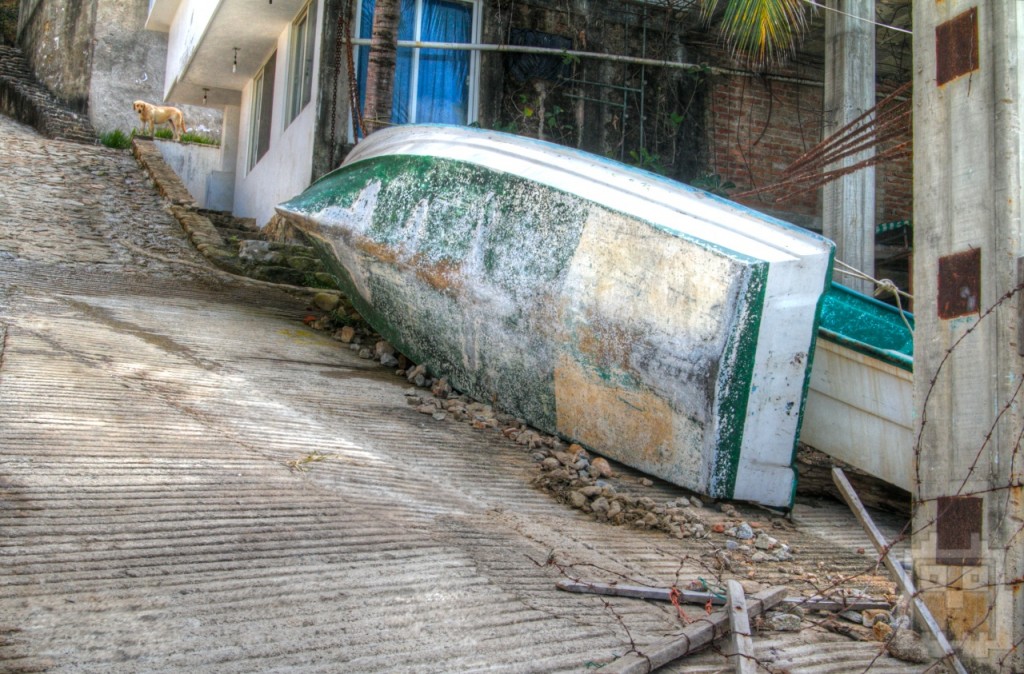
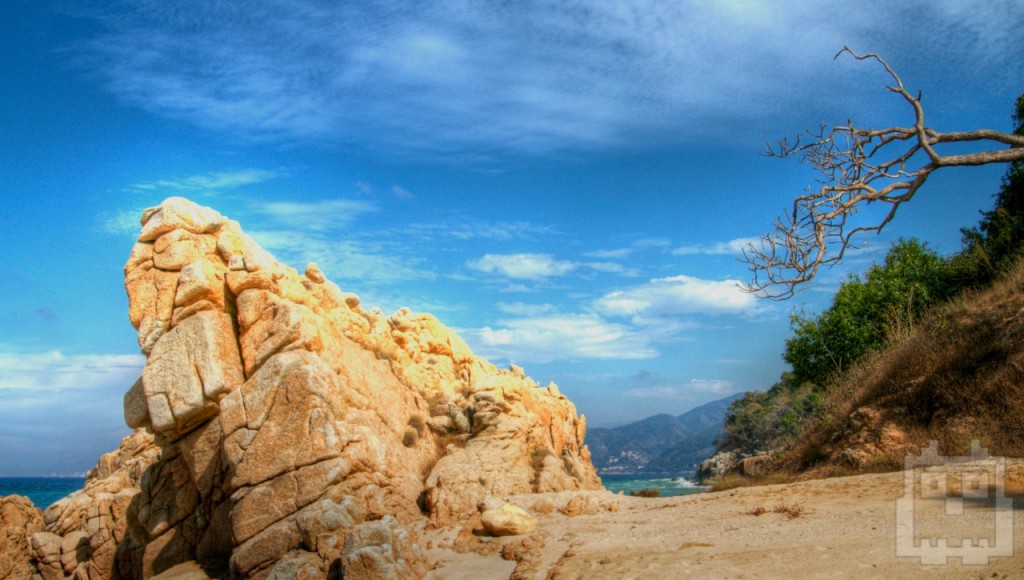
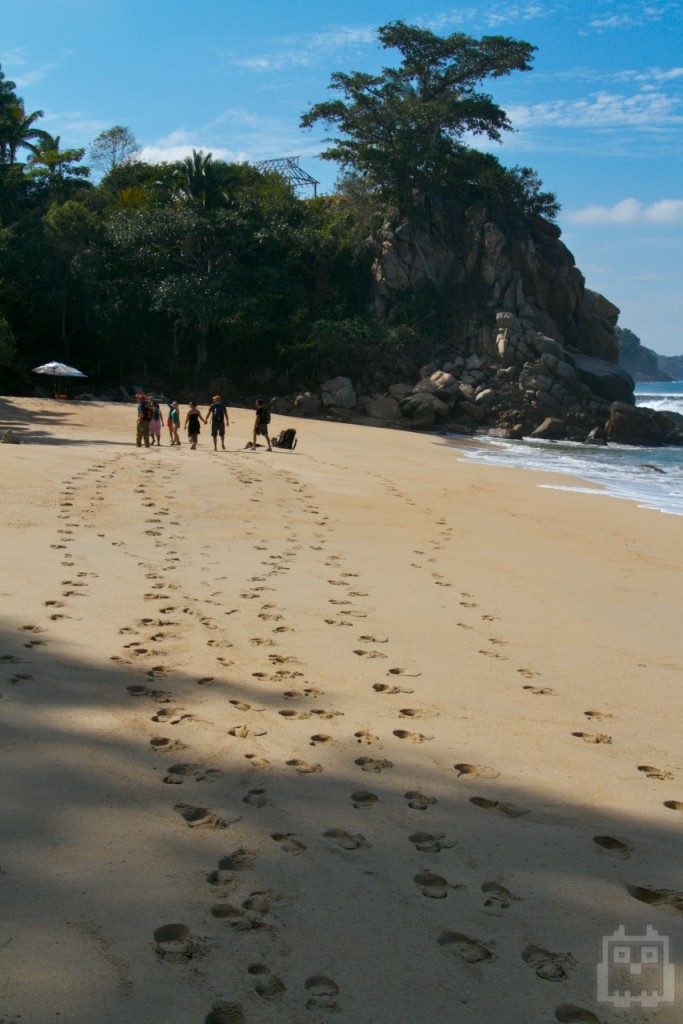
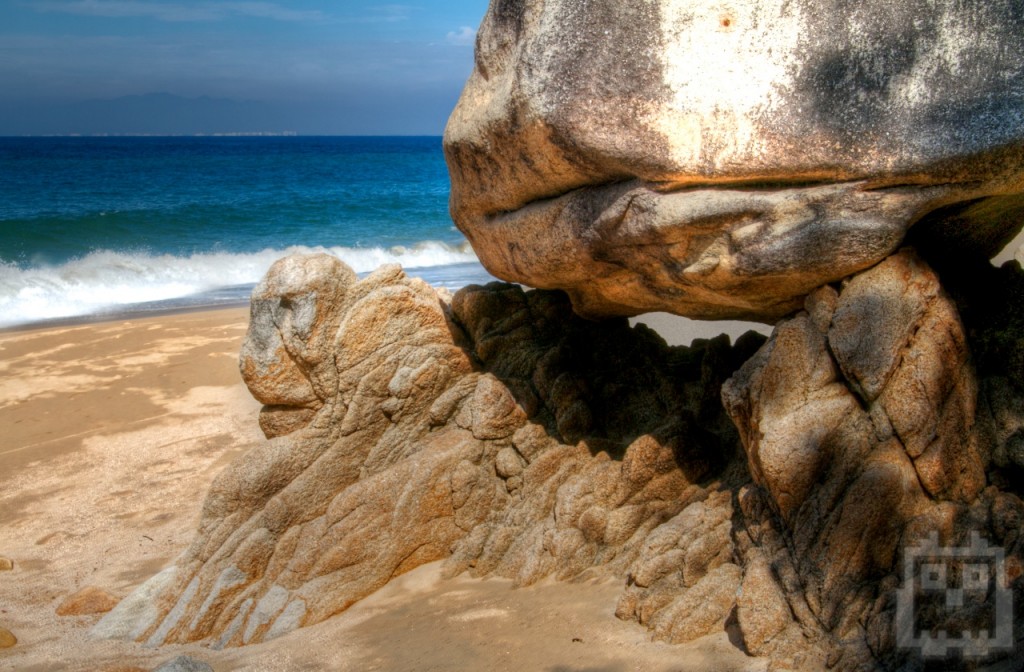
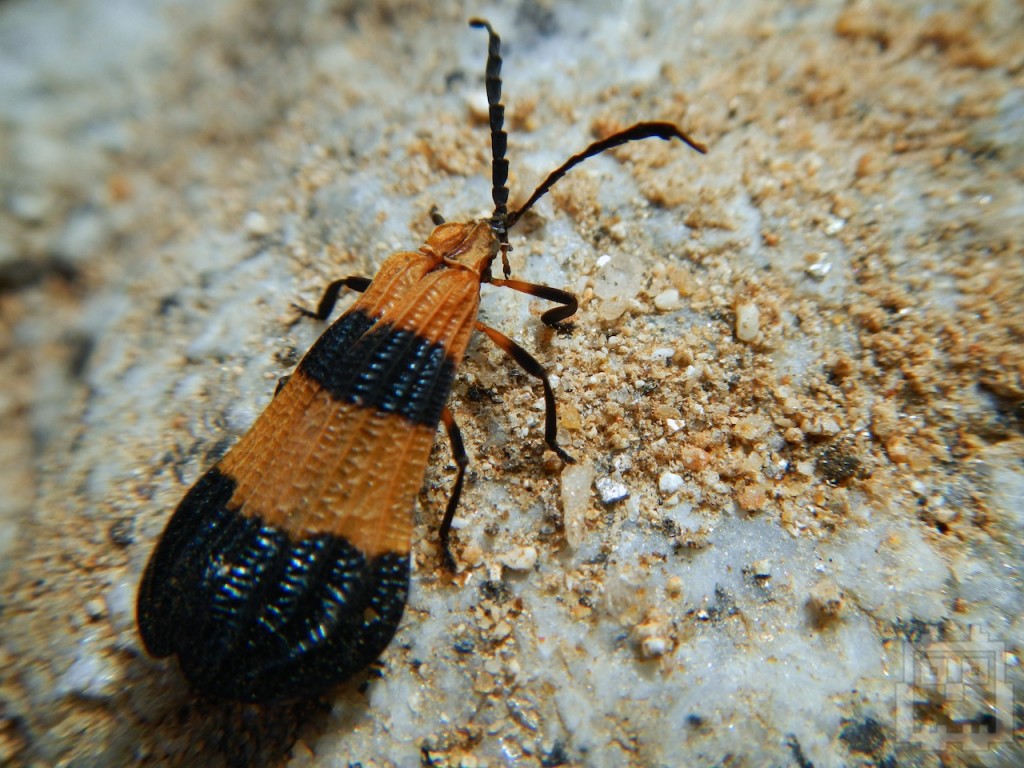
The work side of my time in La Cruz was ultimately packed into the last week of being there. Just like writing a paper in college, I waited until the last minute. Waiting until the last minute is never a good idea, but surprisingly everything I needed to get done, got done. Hmmmm... Just like in college. Replacing some standing rigging, re-welding the gooseneck bracket for the boom, reattaching the boomvang to the mast and reinforcing the mainsail all were completed. I have to thank the cruisers community in La Cruz for helping me out on these projects, Sea-Tek Marine for the rigging help and PV Sailing for helping me reinforce my mainsail. Things break. Unfortunately, things will always break, but fixing them is something of a fun puzzle. Not just mechanically, but socially. It took me a whole day to find the right bolts for reattaching the boomvang to the mast. Lots of conversations and lots of bus rides later, I had the bolts. Boat repairs in other countries are like little missions. I didn't exactly have a theme song like Tom Cruise does in Mission Impossible, but I had lots of fun executing them.
The mainsail work with PV Sailing was the most satisfying project. I don't have money to spend on anything really. My cruising fund is devoted entirely to cruising costs (food, fuel, fun), and repairs are essentially ignored in my budget. One night at Ana Bananas, a cruisers bar/restaurant/performance-hall, I was chatting with this guy Mike about sailing. I told Mike about my boat projects, one of the big reasons I was sticking around La Cruz, and he turned out to be the owner of PV Sailing! How awesome is that! Mike suggested I trade time in his sail loft for the mainsail repair I needed. I couldn't say yes fast enough. Every day I would spend a couple of hours in the loft doing simple tasks, de-stitching sails that were going to be repaired and such. I asked lots of questions and looked over Mike’s shoulder during every step of my sails repair. I can’t thank Mike enough. We ended up making the main loose-footed, a somewhat terrifying experience. Taking scissors to my mainsail increased my heart rate big time.
The rigging work was the most tense. I started taking down standing rigging in the anchorage. Not the best idea. The swell at sea level can make someone nauseous, but once you are 30 feet above the water, that small arch at sea level is expanded to 10 feet of swing right to left. Ok, so I was swinging around, what’s the big deal? Well, if you are male and have ever worn a climbing harness, you have a pretty good idea where I am going with this. I have never had a vasectomy, but after re-rigging Panache I believe I experienced the equivalent. I’m not sure how successful the back-alley procedure went seeing that the climbing harness isn't an accredited doctor. Having mechanical fittings on my upper shrouds made re-rigging a breeze once the steel wire was cut thanks to Sea-Tek Marine. I now have serious confidence in my standing rigging and should be good for another 10 years.
With the boat ready to go, my new crew member arrived, ready to give a helping hand down the rest of the Mexican Pacific coast. I was a little apprehensive about this particular crew member. I just wasn't sure if we would get along. The stresses of sailing can make even the best of friends have issues. For as long as I could remember my father was the one telling me what to do, and now that he was crew on Panache, I would be fulfilling that role for him. My patience, and his, would be tested. I greeted him with a hug and a smile and prepared for the fireworks as we both said goodbye to La Cruz.
